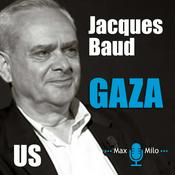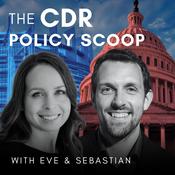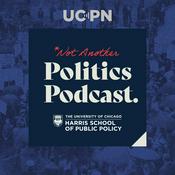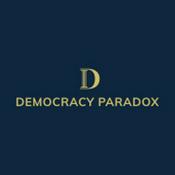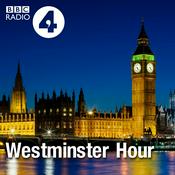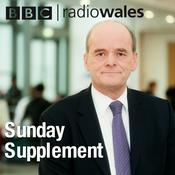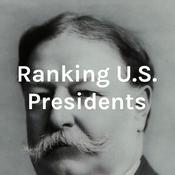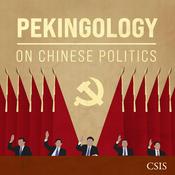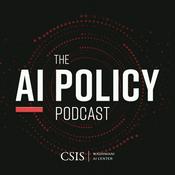35 Episoden
Rethinking peace: Beyond the absence of war with Paul Shrivastava and Nolita Mvunelo
12.12.2025 | 35 Min.Why are current peace frameworks struggling to meet today’s complex challenges and what would it take to create genuine security in the 21st Century?
In this episode of The Club of Rome Podcast, Nolita Mvunelo speaks with Paul Shrivastava, co-president of The Club of Rome about why traditional peace frameworks are ill-equipped to address the deeper threats emerging from ecological breakdown, widening inequality and systemic instability. Drawing on The Club of Rome’s recent publication Planetary Peace for Human Security, Paul outlines a bold reimagining of what peace might mean today.
Together, Nolita and Paul dive into how conventional approaches shaped by military logic and colonial legacies often reinforce the divisions they aim to heal. They discuss the need for a planetary vision of peace that connects inner transformation, environmental renewal and social justice and why moving beyond analysis towards systemic action is now essential.
This episode invites us to transcend outdated paradigms, embrace an expanded understanding of peace and mobilise the transformative collaboration needed for a regenerative future.
Watch the episode:
Full transcript:
Nolita: What does true peace and human security mean in the 21st Century? In a world of climate breakdown, rising inequality and the accelerating risks of AI and emerging technologies, our guest on today's podcast reminds us that peace must mean more than simply the absence of war. In a recent paper, planetary peace for human security, Paul Shrivastava, co-president of The Club of Rome, argues that traditional ideas of peace, shaped by colonial legacies, military power and post Second World War diplomacy, are no longer fit for purpose. Instead, he and his co-authors propose a concept of planetary peace, a vision of security grounded in the wellbeing of people, the planet and future generations.
I am Nolita Mvunelo, and on today's podcast, Paul and I discuss why peace today must encompass inner development, the environment, technology, and our relationship with nature, and how collaboration can turn global crises into opportunities for renewal. That's all ahead on The Club of Rome Podcast, where we explore bold ideas for shaping sustainable futures.
Hi Paul. Thank you so much for joining us today. How are you doing?
Paul: I am doing fine, Nolita, how are you doing?
I'm good, I'm good, and getting right into it. So, what is planetary peace? Because you describe it as something that's much bigger than the absence of war. What exactly does this mean? And why have you chosen to pursue this topic specifically?
So historically, peace has been cued in relation to wars, usually wars among nations and among sub national groups, and peace is what's supposed to stop the wars and take care of victims, etc. But humanity now faces a much bigger risk to human life that can cause 10 times to 100 times the number of deaths that even the largest wars in history have caused, and that risk is the breakdown of planetary ecosystems. These kinds of events can kill and injure millions of people at a time in specific natural disasters that we hear about, which are becoming worse and more frequent, but also in slow seeping harm that is causing excess number of deaths from what was normal before the pollution of Oceans and air became so huge. So planetary peace is a concept of peace and nonviolence that is responsive to these major sources of violence against humans and against nature and all species. These kind of dangers and risks ensue from breaching of our planetary boundaries. So, we kind of wanted to raise the discussion of peace from the narrow focus on international wars to something that is planetary in scale and responsive to the challenges of the planetary boundaries and also the destruction of ecosystems.
Nolita: This was the title of the first version of this publication, and now the second one was on planetary peace in the Anthropocene. So, when I'm hearing your response is that it's very much nested into this idea that we have entered a new epoch. The Club of Rome is well known for its systems thinking, connecting the dots between economics, environment and human wellbeing. Why have you chosen this legacy and the Anthropocene as the way to observe and explore peace?
Paul: Yeah, that's a really good question. I think some of it is specific to The Club of Rome, the way this discussion emerged amongst us. But on a more abstract scale, we are defining peace in systemic terms, because it is a legacy of The Club of Rome. And for us, there are three components of the systems of planetary peace. One has to be at peace with oneself. The second is peace with others, between neighbors and nations, etc. And the third is peace with nature. These systems of peace are interrelated. They're interconnected. They're very interwoven. So, we are very much following in the legacy of systems thinking of The Club of Rome. We also trace the roots of these systems of peace to other economic, social, cultural and political systems and practices. So, we connect peace with systems that govern everyday activities and the life of people. This way, we hope that each individual person will be able to see the role of peace in their lives, in the way they conduct their lives, and take responsibility for and do something about it. So, we wanted to not only do systems thinking around peace, but also a kind of people-enabling so that peace is not left to security experts. It is not left to governments to deal with. Because, frankly, the record of governments in dealing with peace is rather abysmal. We've had 2000 years of war, so we thought that we need to shift the locus of action to people, and that was the other reason for thinking about it in these systemic terms.
Nolita: What are the considerations about the question of understanding or navigating power? Because this, this publication, was also coming in like a backdrop of over 100 global conflicts, two of which are really grabbing the attention of people, while also, you know, the political landscape in and of itself, is shifting.
Paul: Yeah, so actually, we started a conversation within The Club of Rome as a response to the Gaza crisis. I mean, what is now widely acknowledged as being a war of genocide. And it shook a lot of people right at the beginning of the war, and we started having conversations within the club, among members, about what, what are we to think of this? How are we to make sense of what is going on in Gaza and what's going on in Ukraine, and what's going on in all these other wars that we have been engaged in? What does it tell us about being human? And so actually, before this publication that you are referencing, we had another publication called “Enduring Peace in the Anthropocene”. And I'll come back to the question of the Anthropocene in a second. I know I didn't fully address it, but in that publication, I invited about a couple dozen Club of Rome members to explore this question of that we are moving into this new epoch of life in which lot of conditions are changing. People are describing it as a polycrisis and so on and so forth. What do these particular events of war tell us about living peacefully in harmony as human beings? And each person took a very different view. With a kind of open ended invitation, we got these 20-odd essays from people from all parts of the world with very different backgrounds, and it made clear to us the limitations of the traditional notions of peace, which is what prompted us to say, hey, if, if all these dangers and wars and losses are not fitting in, and particularly the Gaza war, into a narrative of peace that we have inherited over the last 200 years of war, then we need a new concept of peace, and we call it planetary peace, and we worked on developing that paper.
So let me go back to the Anthropocene, because there are pieces of that puzzle that we haven't really fully parsed out. The Anthropocene clearly, we are in a period that is characterised by great acceleration in human population and in economic production and consumption, in devastating extraction of earth's resources, with tremendous inequalities at the same time, and in socio economic activities that are literally, literally killing the soil worldwide, killing plant life, killing other species. I mean, we are killing 80 billion animals every year for food. These are not sustainable, these are not peaceful approaches to the economy, approaches to dealing with the challenges of the Anthropocene. These are nature extractive capital accumulation processes that are at the root of breaching planetary boundaries of life, and they spill over in several ways into security and conflict issues. First, in order to provide security to the resources that we want to extract and the logistics routes for these resources that we need to protect, we are increasing military expenditures, and military systems build out.
In 2024 we spent about $2.4 trillion in defense, so called defense expenditures. And these expenditures are going to double in the next decade. The US is already for 2026 wanting to spend over a trillion dollars itself. And then China has increased its budget by 7% India has increased its defense budget by six and a half percent, and all the NATO countries, which sort of fell under the US umbrella, are now being pushed by the Trump administration to spend 5% of their GDP into defense budgets in 2026. And so, we are moving in the wrong direction, in to protect the exploitation of resources which actually caused the Anthropocene. So that is one link to the Anthropocene.
Secondly, the extraction of local resources, whether they're in Africa or in other parts of the world, is itself a source of armed conflicts. Now, these extractive practices benefit very differential populations. They are very unequal, and most of them are quite unfair, at least in the view of the locals. So, there is resistance by local communities to exploiting their local resources for profits by some anonymous, private and public corporations. So environmental technologies and nature-based solutions must become part of the security solution. Human security is not just about protecting the resources for the rich, which is where the inequality equation is becoming so bad now that less than 2% of the world controls 90% of the world's wealth, and so this trajectory of the Anthropocene needs to be dismantled eventually, but at least disturbed right now.
And the third reason I would connect Anthropocene, and wars and peace is that the impacts of the current security practices is probably one of the largest cause of climate change. Defense forces and wars consume an enormous amount of resources, as Gaza showed us, as Ukraine is showing us, as other wars have showed us, they use a lot of fossil fuels. They destroy a large amount of natural environment, and we don't even track it. We don't measure the ecological footprint of armies, militaries and wars under the Kyoto Protocol, nor under the Paris agreement. And this is a huge blind spot. So we need to tie together the discourse of the Anthropocene and reimagine a piece for the Anthropocene. And this is where we are. We are sort of proposing planetary peace as a way of thinking about peace in broader terms.
Nolita: So, if I understand correctly, the Anthropocene is, or can be, in and of itself, a violence. And you know, like the extraction, the acquisition of resources, the acquisition of human labor, is kind of what seems to perpetuate this. I mean, even if you think of it like in like the traditional human evolutionary stories, that man starts to farm, man starts to want to protect farm. Man now starts fighting neighbor because neighbor is encroaching on their farm. Here we go. We've invented war. If one accepts that narrative, it seems like it's been this trajectory that has been happening for quite some time, so much so that scholars really start to then grapple around the idea of, when does the Anthropocene start? Some define it as Anthropocene starts when colonisation starts, because that extraction of human labour, kind of makes war almost inevitable, inevitable part of development. I'm thinking of a book called “A Billion Black Anthropocenes or None”. I'll share a link after this. So, I guess my question then is, what does planetary reconciliation look like, or planetary peace? So, the reconciliation of peace with oneself, peace with the other, peace with nature. What are the emerging proposals that were coming up?
Paul: Yeah, so, I mean, each one of them is a huge area of debate and discourse. The Club of Rome is involved in some of them. We have another paper that was put out just earlier this year on inner development, which spoke to the question of, What does peace with oneself mean? We need to understand the self in deeper ways. And I think we have the whole Fifth Element project thanks to you and all the people that you're leading in that team to try to fully understand what it means to be human. I think those are all elements of trying to understand what peace with oneself could look like. Now, there are also existing practices of people who are leading in that space. I read somewhere that over 300 million people are practicing meditation every day, and another 3 million people are doing things like yoga and other mindfulness things to cultivate the self in a different way. So I don't think in in regards to acknowledging that peace with oneself is an important component, that we are new, or we are the first one. There are a lot of people who already have this insight, but they're perhaps not connecting it to peace. They are kind of thinking of peace, mental peace, or peace with oneself as something that stands alone and is their individual responsibility and doesn't connect to the rest of the world. And we want to invite them into this conversation of planetary peace and say, no, what you're doing is actually a very essential and perhaps a central part of the systems that are needed to engage in planetary peace.
Similarly, peace with others. I think it has been over the years and the academic discourse and certainly the practical positions have been captured by a kind of specialisation on international security and the international security world has a certain language, a certain narrative, to describe that, and in my somewhat naive judgment, it doesn't contain the key elements of this Anthropocene thinking that we just alluded to earlier. So that community needs to really deeply consider what the implications of the Anthropocene are, whether it started with slavery in the 1500s or 1600s or even earlier, or it started in 1700s with fossil fuel. I mean, the timing of the Anthropocene is, to me, less important than the core insight that it is the Anthropos, the humans, that are now at the center of driving conflicts and change and extraction and exploitation, and we really need to reconsider our way of thinking about the world and thinking about nature and thinking about peace in that light.
Nolita: I then also want to add a challenge, because also the risk of the framing of the Anthropocene is that it creates this equality of humans, as if all humans have put us in this position we're in. If I take an example of like from an African context, is like the ability of an African person to have an impact on the environment versus someone from somewhere else, are very different. Of course, modernity, right, like how Bruno Latour describes it, or being removed from nature, seeing humanness as separate from nature, I think to some extent, most humans participate in that, but it's not the same. And I probably could then imagine that even the discussion of planetary peace in the Anthropocene probably faces a similar type of debate of that not all people, there is no equality in creating wars. So yes, we can have self-enlightenment. I mean, various cultures also have different forms of enlightenment, like there's Wudu in Southern African context. You know, there's various forms of consciousness in different Asian contexts that already within, embedded in culture has a level of reconciliation that is required. So then the peace with other and peace with nature, question that you've been addressing on the Anthropocene part, still to some extent needs to be addressed.
Paul: Yeah, yeah. I'm glad you pointed that out, because I also feel that the idea of the Anthropocene is not to just homogenise and blame everybody uniformly. We know that is not true. I mean, I keep emphasising the Anthropocene when I talk about it, I put climate change, of course, as one of the big things. But my very next thing is inequality, because climate change is not happening because what you and I do. 10% of the wealthy and their jets and ships are producing more carbon than most of what the rest of the world is doing. So, even in the case of climate change, I think who produces and who suffers the impact is completely the opposite. And there are two extremes. The production of the Anthropocene can be very squarely put into the hands of the rich, the rich countries, historically, they are the ones who have produced all the carbon that is now causing the changes, and it's the poor countries that suffer the consequences. So, to me, Anthropocene doesn't mean that everybody is equally responsible, or so I accept that, and I think it is also a question of responsibility. So, if there are historical causes that we are now starting to understand, then the richer countries, and within the countries, the richer communities, have a responsibility to deal with it in a more aggressive way. So yes, I think we will, as we start developing programmes, we will need to not only be mindful of this, but we will need to go to some very uncomfortable conversations about what reparations look like, what solutions look like, what reconciliation really means. It is not that simple in my mind, at least, and while I might not have an answer to what that reconciliation might mean. But I think that if we truly want to become human in our full potential, that reconciliation would have to include those three components, forgiving ourselves as individuals finding ways to forgive others, our neighbors, other countries, and reestablishing a new relationship with nature. And it's a very rich area for research, for practice, for change, for leadership. And I'm hoping that what this paper will do is to entice these other communities that have been providing answers to the old questions to rethink new solutions.
Nolita: You are listening to The Club of Rome Podcast, the place to discover bold ideas, from changemakers who are tackling the world's biggest challenges, from the climate crisis to inequality and systems change. The podcast is over a year old now, and we have an archive including episodes on building wellbeing economies in turbulent times, Africa's war on misinformation and building climate resilience in the most vulnerable communities. You can find them on Apple Spotify, or wherever you get your podcasts. Now back to the discussion.
One of the most hopeful ideas in the publication is what you call existential opportunities, which, you know, nice play on words. You suggest that even amid global crises, humanity has a chance to reinvent itself. What kinds of opportunities are you referring to and what would a regenerative civilisation actually look like and be like in everyday life? Karima Kadaoui, a Club of Rome member, she always does this exercise of you wake up in the morning and your dreams have come true. What does that look like?
Paul: You're asking some really very piercing questions but let me just say that the reason for thinking about existential opportunities was my rather idiosyncratic reaction to the debate that a year and a half ago I was involved in with regard to existential risks. Everybody was talking about existential risk. We were kind of coming out of a pandemic, which was the newest existential risk, after being exhausted for 20 years by climate change and 50 years with nuclear Armageddon, that were all existential risks, and now this new one, and followed very quickly by AI as an existential risk. So I was getting scared, frankly, and if we are going to think about risks, and as a Chinese proverb that says every risk is also a kind of opportunity for someone, we started thinking about what might be a way to react to existential risks that would be at least of a similar scale as these risks. And so, we came up with this notion of existential opportunity, and what we need to open our minds we become human in certain ways, and some of those ways are actually quite unhuman or inhumane. And the Gaza war is just an example of it. I mean, here is a genocide of hundreds of people, thousands, hundreds of thousands of people, and a destruction of nature. We are all watching it on TV every night, and somehow it is getting normalised by people. It is getting justified. And while at an existential level, I feel a complicity. I can't watch this without saying like I am involved in this. It dehumanises me even to watch, and I should be doing something about it, my moral and my social and my all kinds of antennas are going up on, on this and yet there is no language, there is no narrative to describe this opportunity that might be there. So we, we thought that maybe the most fundamental opportunity is what The Club of Rome has been alluding to, what the Fifth Element has been alluding to is, how do we imagine being human in a world where all these major threats and polycrises are all around us? And so at the most fundamental level, this is a personal question, and it's a question that I took hope from that, even at the age that I am, in where most of my life is in my background, that I can still ask, can I be human in a different way that would avoid and prevent these kinds of carnages from happening? And so, at a very fundamental level, I see this as an opportunity to redefine human existence in relationship to themselves, to nature and to others. And it will have different answers for different people. For some, it will be a professional thing. What can they do in their own organisation, and how can they change their businesses or their hospitals or their educational institutions? For others, it will be a more private response. How do we change our consciousness? How do we change our mindset? How do we change our value? And for still others, it will be a policy question that we can be create more humane policy, the educational policy, social policy, economic policy, etc. So, I think our purpose there was to just open the door, just kick it open, and say everything should be reconsidered.
Nolita: One of the proposals was on this transdisciplinarity, or interdisciplinarity, producing of knowledge, of collaborating, of creating new initiatives. Why was that one of the pillars? What was the opportunity that you were seeing there?
Paul: Let me say that transdisciplinarity is part of the solution. I still see it as a positive force, but I've been arguing this for like, 20 years, and I'm a little bit fed up that the debate of the discourse of transdisciplinarity is just hung up still around disciplines. Who is having this debate now? In 2004 and 2005, and this was 20 years ago, literally, it was academics who were boxed in small disciplines and started to say, “oh, we need to talk to each other, and we need to talk to people outside academia”. And unfortunately, that debate, while there was this acceptance that we need to break out of disciplines and silos which are narrow and allow us to go deep, but don't allow us to go across, that that was an important challenge. But I'm afraid that as academics, we haven't done a good job. And I consider myself as part of the one who was promoting transdisciplinarity, and as a result, academia now has a transdisciplinary hang up. They keep talking about doing the same thing that we were talking about doing 20 years ago. I would have liked to see that debate emerge and take root in business, in medical, in other fields where practices have to go across their sectoral confines and silos, maybe we failed. Certainly in academia, we're still trying to go across disciplines. And since there are 20, 12,000 or 15,000 I mean, it's an impossible task. So, I think in some ways, we have not truly understood transdisciplinarity, and we have not made that much progress, but the idea that we need holistic action and holistic knowledge, perhaps, and a more holistic, planetary or cosmological consciousness, that core idea is still very valid. The way it is being put into practice in different practitioner groups, like academics or is, is very disheartening to me. So, I would say, yes, we should continue to do it, but let's not just react to our own immediate environment of disciplines. Let us look at what that big insight is calling for and take those large leaps that need to happen, and some of it means getting out of our comfort zone of our discipline or our academic institution or our conference or set of practitioners or communities of practice into completely different ones, and learning what it means to be effective there, and becoming a new person as a result. That's what the core of transdisciplinarity now holds.
Nolita: I've run a little experiment on transdisciplinarity on myself because I did my undergraduate in chemical engineering. I'm doing my master's in Environmental Humanities. So one day over coffee, I'm going to give you my unhinged analysis of what's going on. But I think, but if I, if I try to keep it professional for the podcast, I think a lot of it, when I try to analyse, like a case, an example of a water conflict in the rules of the Eastern Capes of Africa. And what happened and what continues to happen, a lot of it does have to do with does this learning actually create change, or is it knowledge that insists upon itself, you know, like knowledge that is so refined and so finite that it just insists upon additional knowledge. So hence, the response to the problem is, let's get funding for more knowledge and not let's now inspire change. That's my top line analysis of what I understand, having now put my foot in both worlds. Could this potentially be one of the invitations then that are coming from The Club of Rome to the listeners of this podcast is, how do we overcome some of the analysis paralysis? What does interdisciplinarity at the action level as well as the knowledge level as well as the consciousness level, look like?
Paul: What you just said is probably the most insightful thing I've heard about transdisciplinarity in a very long time, that it is about action. It is about impact. It is about change. It is about being on the ground in the real world, and what does it take to do that? It doesn't actually have very much to do with the discipline. I mean, these disciplines and silos or whatever blinkers and bubbles we want to live with our choice we like chosen to self-censor ourselves from action, because action is not a trivial thing. It comes with personal responsibility. It comes with personal consequences, and one can play a lot of mind games to avoid taking those risks of action. And I think the transdisciplinary academic discourse is in some ways shielding people from going into action in that dramatic way. And what you are telling me is that as you have experienced life and engaged in projects, you've started realising the kind of connection between that action and understanding. And sometimes you need a lot of understanding to engage in meaningful life, sometimes you don't. You just have it. So, I would agree with you that action is the heart of it. There are some real problems in the world out there, and we can't just keep on understanding these problems. We need to go and solve them. And I think if there's one thing that we could be doing more is modeling. So, when I look at you, and I look at some of our other colleagues and our members, the ones that I'm really inspired by are the ones who are on the ground doing things, rather than just talking about doing things.
Nolita: So, the invitation is more people on the ground doing things, and for them to please get in touch. Because my final and my last question was that you described planetary peace as both a process and a project. In a world that's defined by division, what gives you the hope that this particular vision might be the one that actually takes root?
Paul: Very good question, and also it kind of behooves the question of, how are we going to bring some new initiatives into reality and establish some things so as we are taking this concept out, we are always looking for collaborations, and I am really amazed with the kind of reactions that we are getting from all sorts of groups, all the way from the InterAction Council, which is the former heads of state, to individual university like Kyung Hee University, Hiroshima University, to there's a group called The Elders for Peace that are mostly retired bureaucrats and academics who are interested in innovation in the peace space, to peace organisations, the traditional peace NGOs, which is a huge community in itself, to academics, to people who are victims of war and trying to bring about peace in hot areas like Gaza.
All of these different groups that we are talking to, they get it. They get the need for expanding peace and creating a peace centric world, just like we were arguing for an ecocentric world 50 years ago when the ecological movement started. We are sort of taking that idea of ecocentrism to include peace, and we are kind of weaving the two together to create a peace and ecocentric world together. So it has great appeal, and that is perhaps the biggest source of hope, the fact that younger people are finding a kind of enablement in this notion that saying that, yeah, we can do something, perhaps not about what's going on in Gaza, but if we look around us and look at the economic system that we are embedded in, we see a lot of violence, violence to the earth, violence to our neighbors, violence, and we can hopefully do something to rectify that at our local level. So, this kind of enablement is another source of hope for me, but ultimately the proof of the concept will lie in how many action projects we can create. So, we're going around to foundations, proposing to them that we need to change our economies towards a peace economy. We need to change our political systems and our educational systems and our healthcare systems and our food and energy and all our systems.
Nolita: Okay, thank you so much, Paul. Thank you for joining me today.
Paul: Okay, thank you, it was a wonderful conversation.
Nolita: Thank you for listening to The Club of Rome Podcast. Follow us on Apple podcasts, Spotify, or wherever you get your podcasts. Learn more about The Club of Rome and planetary peace at Club of Rome.orgCollapse & renewal: Civilisation at the brink of transformation with Nafeez Ahmed, Ginie Servant-Miklos & Till Kellerhoff
24.10.2025 | 28 Min.As climate chaos, political polarisation and collapsing trust shake the foundations of society, we stand at a turning point. These overlapping crises are not just signs of collapse but symptoms of a deeper breakdown, a system that puts profit before people, competition before community and short-term gain before the planet we share.
In this episode of The Club of Rome Podcast, host Till Kellerhoff speaks with members of The Club of Rome, Nafeez Ahmed and Ginie Servant-Miklos about how this turmoil could seed renewal, a once-in-a-civilisation chance to reimagine how we live, work and care for one another. They explore why the far right gains ground amid chaos, why progressives struggle to respond and how tech billionaires exploit instability to sell the illusion that technology alone can save us.
Examining the psychological toll of losing our shared “normal,” the conversation invites listeners to move beyond despair, challenge outdated assumptions and engage in the collective renewal already emerging through new forms of economics, energy and education.
Watch the episode:
Full transcript:
Till: Today, it feels like everything is falling apart. Climate chaos, political breakdown, collapsing social trust. But what if these aren't separate crises, but symptoms of a deeper systemic decline? At the heart of it lies a way of living based on self-maximisation and extraction from each other, from other species and from the planet itself. But collapse isn't only about ending.
I'm Till Kellerhoff, and in this episode of The Club of Rome Podcast, we explore collapse not just as destruction, but as a potential phase shift, a reorganisation of human civilisation, through the flows of energy, technology and culture.
We ask, why does the far right seem to thrive in this chaos? Why do progressive movements struggle to respond, and how can we avoid falling into despair and imagine new systems that deliver wellbeing for all on a finite planet?
I'm delighted to be joined by not one, but two members of The Club of Rome, Nafeez Ahmed, member of The Club of Rome, systems theorist and investigative journalist, Nafeez has been writing and researching about the intersection of major global ecological crises from climate, energy, food water and how they intersect with social and political crisis.
His most recent book is Alt Reich: The Network War to Destroy the West from Within. Welcome Nafeez.
Nafeez: Thank you
Till: And I'm very happy to welcome Ginie Servant-Miklos, member of The Club of Rome, an environmental educator and Assistant Professor in Behavioral Science at the Erasmus School of Social and Behavioral Science in Rotterdam.
Her most recent book is Pedagogies of Collapse: A Hopeful Education for the End of the World as we know it. Welcome Ginie.
Ginie: Thank you
Till: Ginie, so your recent book carries the term collapse in the title and Nafeez you also wrote an article already in 2016 titled Failing states: Collapsing systems, biophysical triggers of political violence. Before we get into the details of collapse, you both seem to share a certain fascination for this concept of collapse. Where does that come from? Why is that? Maybe we start with you Nafeez.
Nafeez: So, I think collapse is something which is often seen kind of taboo in our societies.
You know, the idea that things can be really falling apart is not something that we hear much systematic discussion of. But I think increasingly in the last few years, even though the concept, or the, you know, the word collapse, is not something we're always seeing in the news media, but I think it's becoming something which we're all feeling, and a lot of people are now feeling this sense that something isn't right.
Something is falling apart. And it almost feels like everything is falling apart around us, but we don't really know why. So, the idea of collapse, I think, you know, begins to kind of put a bit of a specificity to what we're all experiencing. But what I hope, increasingly, we're seeing is that there's a body of quite strong scientific literature across both the natural sciences and the social sciences, showing that collapse is a real phenomenon in nature, and has therefore massive implications across our societies, our economies, our cultures, precisely because, as we're increasingly beginning to see, our societies, our economies, our cultures, are rooted in the natural world. They're not separate from it. They're actually very much part of it.
So, these life cycles that we can see in the natural systems, where, you know, we see systems growing, thriving, but then also experiencing collapses, and that's kind of a part of this, of a natural process. These are things which we can also see at a big macro scale in human society. And in my view, I think industrial civilisation as we know it is on the cusp of a very similar type of moment that we have seen across living systems. But it's we're seeing a process of breakdown in all the kind of big systems that we take for granted.
Till: Just to follow up here, because you did mention that the events we are currently observing, you describe them as global, systemic decline, in a way, due to a system that is no longer able to keep its current form without sparking father crisis. Which system are you talking about there?
Nafeez: Yeah, there's, I mean, says there's so much to unpack there, but I think at the core of any system you know, is, is energy, and that's not to reduce and kind of take away all the other important factors, because there's many factors, which is about how you organise energy and the way that you see the world in the way that you see and interact, and all of those play a fundamental role.
But I think what we're seeing is that the climate crisis, which is kind of like in a way, it's the in our face symptom of the catastrophes that we're seeing, of that collapse process we're seeing, but it's not the driving cause of the crisis. The driving cause of the crisis is the way in which our civilisation actually works. And of course, energy is at the heart of that. And you know, one side of that is the fact that the energy systems that we currently rely on, basically fossil fuel resources, obviously, are destabilising this natural balance in the carbon cycle when we're getting this increase in carbon dioxide in the atmosphere and greenhouse gasses, and the planet can't cope with that, and it's having all sorts of destabilizing effects which are really difficult for us to understand.
But the other side of that is that the energy system itself, the fossil fuels that we rely on, are, in a way, experiencing their own forms of diminishing returns. And there's a concept called energy return on investment, which my colleague Ginie, has also written extensively about, which is a way of understanding the quality of energy, the amount of energy you use to get a certain amount of energy out. And so now there's, I think, a consensus that you know, amongst experts who've been studying this concept and using this metric, that the EROI of the fossil fuel system as a whole has been in decline for the last decades. And all of this, then, is interconnected. You know, the energy, the economics, the ecology, are all fundamentally actually just facets of one crisis.
So, Ginie, what is your approach? If we look at collapse, I mean, there's systemic factors. There's also something like the lived experience of collapse, right? How do you approach this?
Ginie: Yeah, I love that Nafeez talked about, that we're feeling it, because that's kind of my starting point as a psychologist. I realised, you know, we can look at the impact of energy on the ecology, on the economics, on production, but the key missing element is on the psychology. So, what is it that we understand as normal? What is actually our experience of normality and our experience, your experience, my experience, our experience here of normality is actually a historical aberration. In all of human history, a society with such large amounts of energy available has never existed.
And so what we understand as normal life, that kind of linear model that has been sold to us, packaged in a system that you might call American-style capitalism, something like that, the American Dream, let's say which is you go to school, and the longer you stay in school, the higher your earning potential. You hyperspecialise in a job, then you get married, you buy a house, you have 2.1 kids, you buy a car, and then you retire.
That kind of normality is an aberration that was only made possible by high amounts of energy in the system. This is not how a system with low amounts of energy operates. And the problem is that in psychology, we have this concept called schemas, which is how our brain processes and stores information to allow us to make sense of the work of like the world around us. And our schemas for what normality is are entirely shaped by a very high energy society, and as we enter this series of crises, the psychological reactions to having those schemas challenged, or even to being told what you think of as normal is not going to endure in the next 5, 10 you know, it's already falling apart now, that causes such violent psychological shocks that I think that that is something that can then be very easily manipulated or preyed upon by the kinds of people that Nafeez has done so much research into.
Like it is that psychological fragility, the lack of psychological resilience to collapsing schemas in a way that creates a wide-open door for people to come in with big, beautiful lies, let's say that soothes the psychological collapse that people are experiencing.
Till: Thanks, Ginie, I found that actually very interesting in your book. You do have the psychoanalytical approach to that. You, for example, bring in Žižek reinterpretation of the different stages of grief on how people also deal in times of collapse, right?
You say that there are certain mechanisms that people usually during phases of grief have stages one ideological denial, then anger, then bargaining, then depression, and then seeing the situation as a threat, but also as a chance for a new beginning. How, in this framework, where are we today there? How do you in which stage do you see us in this stage of the collapse?
Ginie: Yeah, I'm seeing a shift, actually, from the moment where I wrote the book, which was 2022, around the time I started writing the book, and the reelection of Donald Trump, I think, like there's, there's been like a sudden psychological phase shift. I like that term, Nafeez uses phase shift a lot in his work, I like that term. So, I think that there is, on a one hand, an acceleration of what I called the phallic-techno magic paradigm, which is the belief that very powerful, very rich men will save us using increasingly phantasmagoric technologies that don't actually work, like carbon capture doesn't actually work on any kind of scale. We can't actually send rockets to Mars to solve anything.
But we are seeing, particularly on certain corners of the far right, an acceleration of that phallic-techno magic discourse, which I think is there's no better embodiment of this than the image of Jeff Bezos sending beautiful women into space, into his phallic shaped object as just a kind of grotesque manifestation of his feeling of phallic omnipotence.
And on the other hand, I'm seeing an acceleration, to an extent that wasn't the case even two three years ago, of despair. So, an acceleration of people just giving up, particularly on the left, so particularly people in the progressive movements who should be the ones leading the charge against fascism and against the right of far right, authoritarian, authoritarian movements have basically given up.
This is actually I'm working on new book, which is called The Left We Need: Sex, Drugs, Rock and Roll and Climate Justice for All. Because I want to wake those people up and say, get out of your despair like you owe the world better than to just surrender and give up now, but I think that's kind of the moment we're living through right now.
Till: But Nafeez, Ginie mentioned already your analysis of phase shift and also these different stages, I mean, you basically refer to this concept that originally comes from ecosystems, right?
Referring to the life cycles of living systems and can kind of see that as a framework to also describe human civilisation, through the lens of like material, information, flows of energy. How do you see that coming in there the phase shift analogy of our time, and where are we with that?
Nafeez: Ginie kind of really nails it when she talks about, when you talk about this kind of sense of complete derangement that we're kind of increasingly experiencing from a psychological point of view. And I think the current system is reaching its limits and is now going through this. You know, people will call it a polycrisis, or we ever want to call it, but there is clearly an interconnected continuum of crisis related fundamentally to the way in which this structure of civilisation works.
That has meant that all of the normal, normalised ideas that we have generated to kind of manage this system, they don't make sense anymore. They don't work. They don't actually, you know, neoliberal capitalism, and you know, the kind of consumer, hyper capitalist culture that we've developed, and all the many different assumptions and lifestyles and things that go along with it, they don't actually make sense anymore. And I think so as that's crumbling, and as the business-as-usual approach, you know, which is, let's do more of the same.
Let's maybe try what we tried last time. Let's maybe try some more quantitative easing. Let's, you know, do this, do that, and we're throwing the same toolbox because we're in the same mindset, and that is actually accelerating the crisis, and people are feeling it.
And so, your ordinary people are looking for answers, but that normalised kind of sense of the prevailing norms and values are collapsing, and as it's a rapid change that we're really experiencing. And this is something that we see time and again when we're looking at the precursors to extremism and exterminatory violence in history.
Major social crisis driving that sense of the collapse of norms, existing norms and values is what drives communities and societies apart, and then people often gravitate to the most, simplest common denominator, oh, it's those guys coming across the border who are the problem. “Oh, it's those, it's those people of color. Oh, they're trans, oh, blah, blah, whatever's on the surface of your consciousness.”
And what obviously makes it worse is that we have a status quo, a technological oligarchy, an economic oligarchy, you know, which is also fraying at the seams, but you have people in those positions of power, many of whom are deliberately weaponising that polarisation because they want to maintain their power, and so essentially turn the rest of us against each other.
And that obviously is extremely chaotic. It feels quite worrying. But I think there's a there's a positive side of this, which is, when we're looking at life cycles in history, the collapse is never the end. It's always a phase transition to something else, and the breakdown of the current order is creating an unprecedented space for renewal, and we're seeing those shoots of renewal in again, two different dimensions. On the one hand, there are these new infrastructural possibilities, which you might see in the way that clean energy is kind of rising up exponentially, and things like that.
At the same time, there are new breakthrough ideas about how to do economics, you know, like doughnut economics, and, you know, governments and local authorities are beginning to realize that, wow, this is a really important approach.
Let's, let's look at this. Let's learn from this. So, there are these opportunities that are emerging. And I think the key thing here is to recognise that there is a possibility space to, in a way, redesign the way we think about civilisation, in society, to create something genuinely new, but that's it's difficult when you're surrounded by this craziness.
Till: You're listening to The Club of Rome Podcast, the place to discover bold ideas from change makers tackling the world's biggest challenges, from the climate crisis and inequality and systems change.
The podcast is over a year old now, and our archive includes episodes on Universal Basic Dividend, changing finance and building climate resilience in the most vulnerable communities.
You can find them on Apple, Spotify, or wherever you get your podcasts. Now, back to the discussion.
Ginie: I'd like to react to something that Nafeez was saying. I think that I wouldn't qualify what's going on with the billionaires right now is status quo anymore.
Because, actually, they're going towards their own phase shift that basically divorces the billionaire class from the rest of humanity, in which and this is a phenomenon which I as a psychologist, and right now a lot of my research is focused on psychedelic drugs, and you see a huge increase in psychedelic use in Silicon Valley and in these places where they have all these like tech utopian ideas, and I'm very worried that these people are very serious indeed about switching to, let's say, silicon based forms of consciousness where they genuinely believe we don't need human bodies anymore, and they genuinely believe that it doesn't matter if we exterminate everybody who's not them on the planet, because future people, or rather, future consciousness, matters more, even if it's a robotic, AI kind of consciousness.
And you'll tell me, well, nobody in their right mind would believe that, but they're not in their right mind if they're well, you know, there's been reports about how much mushrooms, MDMA and Ketamine Elon Musk was consuming on a weekly basis, but he's not the only one.
And I think that's why drugs feature quite prominently in my new work. It's because I do think that that is actually a change in the status quo. So, I think it's dangerous to even call it status quo. I don't know if you agree Nafeez
Nafeez; I think it just depends. I mean, I think I think you're right, I think you're absolutely right to point out that what we're seeing, I think the key point really is that we're seeing a messianic effort to fundamentally re-engineer society in a way which is totally unprecedented and not the same as the current system.
The structures of wealth and power that have allowed these, these groups, to essentially amass their positions, is unraveling. It's this recognition that there is this unraveling that's taking place. And so, in order to maintain that, there's a realisation that will actually it doesn't require just keeping the current system going in its current form, but to maintain their power, they actually have to completely remake the system.
So, you know, while the material infrastructure of the system is going into crisis, the politics, the economics and the culture, are now moving into that phase transition element where there is a plasticity in the system.
So, we're seeing this weird situation where there is this kind of contradictory thing, where, on the one hand, they're going back to bizarre 19th century ideas. You know, traditional eugenics, scientific racist hierarchies. You know black people at the bottom, white people at the top. You know, the ideas of genetic, genetically determined intelligence, and that determining so very traditional ideas, but then those are becoming fused with these really bizarre postmodern technological ideas, which are being packaged in this kind of in a in a new centralised way, and that's creating something quite new, which you're absolutely right. It's not the same system.
It's a different type of system. It's not even capitalism, and people have been, you know, some people call it, is it techno feudalism? Is it hyper capitalism? It's not actually any of those. It's something very different.
But it's very much about maintaining this hyper extractivist power of a very narrow oligarchy.
And I think perhaps the most frightening part, which I think is really, really critical for people to recognise, is that you know you when you start looking at the inspiration that these people are drawing from figures like Curtis Javin, you know this tech bro that Peter Thiel funded, very influential in the Trump administration. And look at what his ideas, not only did he endorse really traditional racist ideas, now he used the N word repeatedly. Talked about how American, you know, again, the N word this group of people were suffered as a result of the end of slavery, you know, and then advocated this idea that there is an existential threat to the white race from a global majority of darker skinned people. That was his kind of founding position. And then he ends up with a combination of, let's talk about resurrecting monarchistic type of societies.
But ends up with, well, we should just get rid of national governments and sovereign borders, and we should just have societies run like Apple and, you know, talking about having a patchwork of authoritarian regimes which are not like anything we've ever seen before, you know?
And I think that's, that's the crucial thing, and you're absolutely right to highlight that if we don't do anything about this, and don't raise awareness of what's coming, then we are not going to be able to respond effectively. And I think right now, we're feeling like we're dealing with something traditional, and we're not. And there's, in my view, there's really two tasks for us on the left. One is really to name and understand what we're really up against in this extraordinary kind of new phase that we're in. But secondly, to really recognise that in that plasticity that's emerging, the only reason that the right wing is currently appearing to win is because there is already an incumbency which is channeling huge amounts of money into it.
But the fact is, is that what these guys are building can't really work, and we know that because it's ecologically illiterate, it's energetically illiterate, it's economically illiterate, it doesn't make sense, and it isn't going to work. And the danger is that it takes all of us down with it. But there is a possibility, as we've seen over the last decades, with the with the ideas and a different way of designing and utilising technology, that it is possible for us to create vibrant societies.
You know, there's brilliant research, you know, by like my colleague, Julia Steinberger, who's done research showing that you can reduce the material throughput of your society and increase wellbeing for an even larger population of up to 10 million people. But it's all about changing our mindset and changing our ideas. And I think right now that people's imaginal capacity to see and recognise those possibilities is being shrunk by all of this stuff. So that's, I think, that that important mission that you're undertaking with your next book, Ginie, I think, is so important. We really need to inject that sense of possibility and dynamism of what actually is possible in order for us to fight back.
Ginie: And it's not just in the book, like I actually do this in practice through the project I set up here in Rotterdam Climate School, which is a place where we take people from the whole education system, including the vocational students, who are all working class. So, I bring in working class people in with people from the middle classes all together through a programme that helps them cope with eco-anxiety and to, so we give them the real truth about the phase shift that's happening in the system, and that's really hard for them.
They get very anxious, but through an approach. It's a Danish approach called Bildung, which is based on, like, personal development and finding joy in aesthetics, music, we do music, dancing, cooking together, boxing, like re-embodying yourself. Because I believe that the key problem, like Nafeez is completely right, the shift in mindset, but the shift in mindset is never going to happen by just telling people: “Hey, but we'll all be better off if we don't use fossil fuels anymore.” Like no rational argument is going to break through it, and that's because we're fundamentally talking about trauma and anxiety as a result of trauma.
People are feeling well already, as Gabor Mate, who's one of my key psychological influences, Gabor Mate, said, in our modern world, everybody's a bit traumatised by the way that capitalism just alienates people and makes them feel detached from each other and has broken down our community and isolates families And so we're all kind of traumatised and on top of that, you're saying, “Oh yeah. and by the way, the world's on fire, and your kids might not have a house to live in, and, you know, there's war, and we're all watching genocide unfold in front of our very eyes.” And like all that trauma, you can't rationalise your way through it. And so, my approach is to really go back to people's emotions, feeling of belonging, a feeling of joy. And I feel like that's where the left has gone completely wrong. Identity Politics has never won any elections. Identity politics should have stayed in academe, where it was born as like an interesting tool of analysis. I am not saying that we should throw it all out. It has its purpose in academia, for the purposes of research and understanding certain things, but as a political tool, particularly when it comes to working with working class people, it just doesn't work.
It creates a whole lot of division. So, where we need to connect with working class people and talk to working class people on things that are hurting for working class people. And yes, that means that women and people of colour, we need to talk to white men. We really have to talk to white men, because they are the ones driving those, like, completely destructive political movements. We have to, we have to get over ourselves. Yes, it's going to be emotional labour. Yes, it's not fair that it falls on us again, but we've got to do it because civilisation, and, like, the future of humanity is at stake.
Till: Thanks, Ginie, and there's so much in there, and I think maybe we need to meet again at some point, but I we have to wrap up soon. I just want to give Nafeez the possibility to respond to that, and maybe also out of what Ginie just said. Now, you know, it feels like we almost need a strategy for the more progressive groups to deal to, to deal with this current crisis. What, what would that look like? And also, what could be a role of an organisation like The Club of Rome in all of this, an organisation you both are a member of?
Nafeez: No, that's those are really important points, and I really appreciate Ginie's exhortation that we need to, essentially, you know, break through these barriers that we have, you know, assumed exist, but don't really exist. It's not about making people wrong. It's about creating a space where we can allow ourselves to be heard, and everyone has to be allowed to be heard. And I think if we take a different approach, which is, which is not what we've done before, it has to be new. It has to be a kind of a new paradigm approach. We can be we can have a huge impact.
Till: Excellent. Thank you so much. And there would still be many topics to discuss. Father, I recommend everyone to read both of your books. And maybe we have another possibility to speak soon. I want to end this episode with a quote from your book, Ginie, though, where you write:
"Our fate is not written. We are not predestined for uncontrolled collapse, untold misery and possible extinction. If we collectively rise up against the system and its enablers and demand its controlled demolition, we may yet preserve some of the organised civilisation and a habitable planet for generations to come.”
And with that, thank you for listening to The Club of Rome Podcast.
Follow us on Apple Podcasts, Spotify, or wherever you get your podcasts. Learn more about The Club of Rome at clubofrom.org
Thank you, Nafeez and Ginie for being on the podcast today and for your time.
Nafeez: Thank you.
Ginie: Thank you.- Africa is on the frontline of a fast-moving battle against digital misinformation, one with profound effects for politics, trust and daily life.
In this episode of We Kinda Need a Revolution, host Nolita Mvunelo talks to Abdullahi Alim, award-winning economist and CEO of the Africa Future Fund, about how social media, YouTube rumours, deepfakes and adversarial AI are reshaping the continent, often out of the global spotlight.
From election hoaxes to ethnic divisions stoked online, they highlight the unique and urgent challenges confronting the continent and the lack of accountability from major tech platforms.
But the conversation is also about hope: practical solutions like investing in education, boosting community resilience and creating spaces for honest, offline dialogue.
Drawing on his own journey from Somalia to a different life in Australia, Abdullahi reflects on how lived experience shapes his vision of the risks and opportunities Africa faces in the digital age.
Watch the episode:
Full transcript:
Nolita: While the world's attention is often elsewhere, Africa is facing a digital war on misinformation. Nations across the continent are facing a quieter but equally dangerous battle for the truth in the age of social media and AI, one that is reshaping politics trust and power. Welcome to We Kinda Need a Revolution, a special series of the Club of Rome Podcast where we explore bold ideas for shaping sustainable futures. I am Nolita Mvunelo, and today I'm speaking to Abdullahi Alim, an award-winning economist and CEO of the Africa Future Fund. Abdullahi is a leading voice on how disinformation and adversarial AI are reshaping power and trust. These are ideas that he examines in his foreign policy essay, how Africa's war on disinformation can save democracies everywhere. In this episode, we dive into the war on misinformation in Africa and ask, what risks lie ahead, what role are young people playing, and what will it take to build resilience and reclaim the digital space? Let's explore what's at stake and what's possible.
Hi, how are you doing? Thank you so much for joining us today.
Abdullahi: I'm good. Thanks. Thanks for having me, Nolita.
Nolita: Our discussion today is going to be on Africa's war and disinformation, but before we get into that, can you please tell us more about yourself and what led you into considering some of these challenges and these potentially existential risks?
Abdullahi: I think every idea needs to be drawn back to its origins, and that also holds for me as a person too. I was born in 1992 in Somalia, and I am of the children of that initial conflict that earned Somalia, the unfortunate nickname of a failed state. And I think going from that early childhood experience in in Somalia to eventually where we settled in Australia, in a more low income bubble when you are a product of failed systems, be it, examples of systems of migration, systems of transportation, systems of housing, you have no choice but to think deeply about how those systems operate to advantage some people and how they operate to disadvantage others. So, I think I've always been a deeply reflective person, even from a young age, and I take that with great responsibility, because my story isn't the norm. I'm the exception to the norm, having had the life that I've had so far, and I want to use that responsibly. And I think that starts not so much with solving things, but asking the right questions, and that's why I lend myself better to systemic issues, systemic fault lines, like what we're about to discuss today.
Nolita: So as a start, may you please take us through the challenge and the landscape?
Abdullahi: Sure. So I think when we think of disinformation, we think of it through a US Eurocentric lens, largely because it's language borrowed from the west. When we think about the large disinformation campaigns that pique media interest, we're usually talking about events that's around the US election, or perhaps proxy conflicts taking place in Europe between pro-Russian voices and pro NATO voices. But the world of disinformation actually expands beyond that, and I think it gets the least amount of attention in Sub Saharan Africa. Least amount of attention, but some of the most profound impacts. Why? Because, I think for the most part, identity on the continent is still delineated against clan, religious and ethnic lines. So, somebody could be of X nationality, but at the same time, they may have an additional loyalty, especially when conflict comes to rise. At a more granular level, the loyalty again, could be to their ethnic group, it could be to their religious group. It could be to their clan. Now, when you have an unregulated landscape of that sort, and when you have less sort of resources deployed by the big tech companies who have a large monopoly in the information highway in these parts of the world, what it means is that those regions, and principally Africa, in this moment, is most vulnerable and most at risk to the kind of disinformation tactics which seem quite analogue relative to what we typically think of disinformation. It really could just be somebody edited to look like they've said something when they haven't. It could be a court attributed to a particular leader of a group, any of those forms of misappropriated text or deep fakes, anything from one end to the other, can have real life ramifications.
Nolita: Do you have any like specific examples or cases where this has happened and what has the impact been? I say this also, like in the current context, where there is a lot of conflict right now, is that at the same time, Africa doesn't get the same type of global attention at times of conflict.
Abdullahi: I think the example that I can give again would be in Ethiopia, because it sort of happened at the worst possible time when the conflict in Tigray broke out in Ethiopia. And of course, this has been brewing for some time. I think it came off the backs of a lot of. Tech companies culling their trust and safety teams, budgets, councils. And what you had was one moderator, for example, for every let's say I'm giving an arbitrary figure here, just to sort of give you the scale one per million of population, so that really when you, when you reduce her to that level, you're never going to be at the scale necessary to be able to tackle this issue. We saw examples in Ethiopia where one faction would basically share an image of a leader from another particular faction. This is, again, was based on ethnic lines, saying a particular, particularly provocative statement against them, or suggesting that they were about to incite violence, which they never did. It got so bad that it reached the stage where that particular misappropriated community leader from the other group was killed off the backs of this misassumption. Now, when you look at the death toll in the Tigray conflict, clocking something around 600,000 people, you cannot disassociate that from social media and the role of disinformation in this particular form of warfare.
Nolita: So then I sense that there's an element of accountability and infrastructure, like what is available for governments or maybe even people to, you know, hold platforms accountable for the lack of infrastructure, like the lack of moderation, etc, but also who chooses what gets moderated, what is right, what is wrong, what can be shared, what can't be shared. Are there any initiatives, even at the state level or even at the international organisation level, that are addressing some of these challenges?
Abdullahi: Most of the efforts now are calling for more moderation, which would have worked a few years ago, but in the age of AI, actually, it's it's going to prove quite inconsequential. I'll tell you why. So I could literally put out propaganda that calls for and incites violence against even an individual, let alone a particular group, and in such a way that I use the latest, what we call adversarial AI, to change and augment the detail of the image from the back end in such a minute way that the naked eye won't see the difference. But a machine might misread as something completely different. So it might read it as, oh, that's a rose, or that's something that isn't inflammatory. So imagine that at scale. So the question then becomes, where do we go from here? Now, unfortunately, the AI ecosystem is quite closed around the world. A lot of these big companies are running closed models. We're outsourcing this huge responsibility to smaller teams behind these tech companies, who, for the most part, don't have the incentive and may not have the interdisciplinary expertise to be able to tackle this issue at their core. So that, I think is the number one issue at the moment is that we've got closed innovation ecosystems that as these problems get more and more advanced, these disinformation tactics become more and more advanced, it actually shuts the door from a global community of experts, both technical and non-technical, being able to come to the table to figure out how to counter that from an algorithm perspective, and we're outsourcing this important duty and responsibility to smaller and smaller companies whose main incentives is really just to win the AI race, as it's called. And so I think who bears the cost? Unfortunately, it will be the continent. It will fortunately be parts of the world that don't have that. Don't have that same level of fluency with these kind of more advanced disinformation campaigns. I also think nalita, we're paying the costs for decades long poor education systems and decades long lack of investments, lack of even just community spaces to heal divides, to create spaces where tension will arise when you bring up narratives and experiences, lived experiences in particular, but not doing it unfortunately means that those issues fester to the point where, when a new medium emerges that's able to sort of take prey on that it resurfaces at a way that we're unable to sort of tackle it, as much as if we were actually looking at the issue from its core. So I'm concerned because disinformation is evolving at a technically rapid rate. The tech companies are becoming more closed, which means that other experts aren't able to figure out the exact inner workings of these models that are being co opted and as a consequence, how to sort of counter them from a technical perspective. And at the same time, we're becoming less and less invested in the social in the educational systems that would have made us more resilient to start with,
Nolita: There is a paper that I read. It was a paper about systemically transforming governance and the development space. And they speak about deliberative spaces that for for there to be new models of governance, you need to have more spaces where there is deliberation around what country are we trying to become? What feature are we trying to create?
Abdullahi: To add to your point, because I think it's an important one about creating deliberate spaces to host these courageous conversations. I also think it's even more important for relatively, quote, unquote. New countries. Our borders are not real, but they are our current reality. So we have to sort of contend with the current moment and create spaces to almost talk as if we are a new ecosystem, 54 of which make up this continent. So unless you are intentional about creating those spaces, these issues will go unchecked, they will fester, they'll go underground, and they'll resurface in ways that a political voice of this future, an opportunist, maybe from another space, can really just set that on fire.
Nolita: It's ripe with opportunists. I think, I think it's become less of a conversation of whose ideas are most likely to be able to lead people, and more about who is more likely to capture the attention of people. I think I've fallen to the AI misinformation videos, because one is that, think it's the latest Google update where the videos look really realistic. And there was like a geese caster standing next to a big pothole, and she was like, Yo, you know, infrastructure problems in Kenya, and then, and then the lady just falls in. And I was like, Oh, my God, the roads are so bad in Kenya. And I actually, like, just like I listened to that, I moved on, and then I saw a similar video about Ukraine, and I was like, okay, that means the other one was false. Growing up, it's like the young people know technology. I didn't know it's going to be on the old people without understanding technology side so quickly,
Abdullahi: But it's how we engage with social media. It's at the click of a finger, so you're not really dedicating too much bandwidth to literally, like, delineate between what's real and what's fake. So very quickly, you could just assume that anything.
Nolita: Obviously public opinion then changes based on that right like, if someone had seen that video, and they didn't see the UK version, and they were just like, oh, wow, the roads here are so bad. I can definitely see myself changing who I vote for, just based off of that, being like, that lady almost died in that pothole. But the point I'm alluding to is that, like, technology is changing politics. So you made a point earlier, that there it is increasing the chance of conflict, like there is violent conflict happening at the hands of misinformation and disinformation, but it's also just like entirely changing the landscape of how even democratic elections are turning out, like South Africa's last election, someone probably could credibly say that this was the first Youtube election, like there was so many YouTube Interviews by politicians making their case, etc, endeared me to some people made me even more convicted as to why I don't like certain people. Is there research happening about how these modalities are trans like, these different formats are transforming how elections happen?
Abdullahi: Um, I think there's a growing Pan African ecosystem of fact-based reporting, which I think is taking more and more interest, taking more and more shape. I think the challenge nowadays, and this might sound harsh for the continent, but I don't think social media shapes politics. I actually think culture is the ultimate point of reference. Everything else is the derivative. So you are only susceptible to this extent, to this extent if you are truly a set of communities that lack resilience. And that becomes the broader question, I think that becomes the question that we need to sort of tackle. And unfortunately, those questions don't get as much attention because scalability is it becomes a secondary question, like, how do you scale resilience if they require so much offline engagement?
Nolita: What does it mean to be culturally resilient? What would it take like tangibly, also?
Abdullahi: I think it's to know your identity intimately. We have complex stories where in some parts of the continent, we are the descendants of those who obviously endure a great amount of conflict, and that becomes almost like a shared trauma. There's such power in creating space for that, but there's also shared power in also creating spaces for ways in which we are descendants of folks who also contributed to conflicts and really sitting in that discomfort. But unfortunately, unless you go down to that nuance of saying, I also come from a part where the conflict was a result of what my community did, and I'm able to take stock of that, I'm able to sort of turn the tide against that. Unless you're able to have those that level of healing, I think it'll always just sort of fester into this more like identity politics game, where each group really needs to reinforce itself through a set of false beliefs to maintain sort of control of its own narrative, over and above the national interest, over and above the continental interest.
Nolita: If the resilience comes from, I guess, the acknowledgement of conflict one's community's role in it or or struggle, is that not the same as identities? Because then I think, does it not then create an environment where it is the Olympics of suffering is I have suffered more than you, or I have suffered at the hands of you, because there are generative parts of like being African that are more positive, that probably could create more positive energy.
Abdullahi: But that's the thing like this. I struggle with Pan African thought is that it stays at the continental level, meaning it stays peripheral, and it doesn't become proximate to like your My specific role in what it means for me to say like I take stock of your, of you, you take stock of me, if, if you are still running in a space where, and I'm talking maybe more about the more pronounced parts of the continent. Maybe I'm talking about Ethiopia, Somalia, Sudan, DRC, where you've got very entrenched forms of violence that were drawn on these very granular lines. If you stay at the abstract unfortunately, which is sometimes what the Pan African level looks like for these parts of the continent, and negate how it shows up in the immediate you are bound to make the same mistakes
Nolita: You are listening to The Club of Rome podcast, the place to discover bold ideas from change makers tackling the world's biggest challenges, from the climate crisis and inequality to systems change. The podcast is nearly a year old now, and we have an archive of episodes that include an episode on the universal basic dividend, on using music for social change and women silencing the guns. You can find them on Apple Spotify, or wherever you get your podcasts. Now back to the discussion.
I want to go back to the discussion about the digital race, or Africa's lack of participation in the technologies that are emerging is, in your opinion, is it? Is it hopeless for us? I mean, the I, when I'm listening to like news from the US, they speak about as if, like, this is the next race to the moon? Are we nonparticipants in the race towards the moon?
Abdullahi: I think there's a privilege, in some ways, in being a last mover, because there are a lot of legacy infrastructure projects that countries have invested hundreds of billions of dollars on across the world that they're still paying debt on that are almost futile at this moment of time. So the fact that we don't have the same legacy systems, I think, could potentially be an advantage, because we have less institutional burden and also less sort of mental burden towards old ways of thinking. Having said that, it means we've got a very narrow window to take advantage of any economic wins that we can over the next few decades, and purpose that towards what's most strategic for us. I don't know that it makes sense to invest massively in being like the number one infrastructure maker of like data centers. I don't know if that's truly strategic, but if we had economic wins from strategic other strategic sectors that have nothing to do with AI, for example, and repurpose that towards building a skills pipeline to service this new kind of industrial wave, that could be a very, very strategic asset for which the different countries can play sort of an interesting geopolitical role as well, and how they engage with with other countries. So, for example, a Middle Eastern country that has large energy supply, if they were to say, “Oh, we will help generate the energy baseload required to help power the data centres that you might need to power your economies. In exchange for that, we will have a skills transfer between either your universities and our talent, or your talent with our companies.” You can actually become competitive in this new configuration of the economy, but I think we've got a relatively small window to be able to do that. I don't think we have to create basically our own ChatGPT, is what I'm saying. I think there's other ways to win the to sort of win as well.
Nolita: I struggle with optimism when it comes to that point, because if those mechanisms to use this technology to our advantage existed, I think even with the social media wave, we would have done more to participate create alternative channels than to essentially just use what is already there, because that's what we started this conversation with. Right that infrastructure exists from elsewhere. There is a lack of investment in moderation and curation and all the things that are necessary to maintain democracies. And as a result, although, like it's often a pretty useful business, like a place to do individual business is not particularly helpful for nation building across these 54 countries. I don't know if that dynamic is going to be overcome when it comes to this particular problem that is even more closed, because at least with social media, you could just, like, make a website and just try to get critical mass of people to participate. This means a type of investment that we have not proven to be capable of doing before.
Abdullahi: Yeah, I get what you mean, but I think it's the economics of it that I'm leaning more into. Like, if we had adequate trade assets, meaning like roads and ports and rails and aviation networks, we would have been able to take full advantage and, of course, internet infrastructure, we'd be able to take the full advantage of what e commerce could have provided for the continent, as far as the transfer and exchange of goods in the online domain. What I'm basically trying to say now is, if we're able to radically industrialise our economies and reduce those bottlenecks that still persist, and by that, there are strong stories, for example, in Côte d'Ivoire. So, the example that I often would cite in workshops is the fact that it literally produces most of the raw cashew nuts in the world, but doesn't gain much in return for that, because much of it is the supply chain is captured in India and Vietnam. Côte d'Ivoire used to just share raw exports. You'd get roasted toasted in South Asia and then sold at a premium to European clients for the most part. Now, I think Côte d'Ivoire now has 20% of the full supply chain since 2008 and I think they started like 5% so just to say that trend is persisting. Now, if you had that where people, where the content is capitalising on its natural assets, on its skills, its strategic proximity, and leveraging that, leveraging the financing wins and headwinds from that, to really re educate its base, because no one has cracked, to be honest, the code when it comes to AI and education. You know, we know that there was a seminal study, actually from Nigeria that the World Bank conducted that said that, you know, students who participated in a 16 week after school program and used AI were able to obtain the same learning outcomes in that 16 weeks that a student typically shows in two years. And it's still one of it's actually now one of the most effective education interventions ever in West Africa. So we are this. There's an advantage in it being a nascent sector, and it being somewhat considered a last mover as well. But this requires a level of coordination, and this requires a level of ambition and imagination that I'm not seeing too much of just yet.
Nolita: The last point I want to make being the type of row is on the climate discussion. Right? The technologies are not climate benign. We have an additional we, being Africa, have an additional risk of being climate vulnerable. Are there any cases that you know of at this stage about like the climate impact that is happening or is potentially going to happen, and any opportunities to overcome it?
Abdullahi: Nothing, nothing definitive. There's speculations, of course, and there are some kind of foresight activities around that, but nothing defined to suggest that there's strong evidence in this, favour or against this definitely by the level of water it requires, and of course, the energy demands of it as well. Does it put a significant strain on Earth Systems, land and water systems, yes, but I think, independent of what the continent does, this trend is going to persist. Unfortunately, unfortunately, unfortunately. I wonder, truly, I wonder if what it might take for the continent to be a true climate vanguard of the world is for it to become a powerhouse when it comes to energy efficiency, water efficiency and restorative generation, all of which require strong investments towards very technical forms of education. The question then becomes, who's going to finance that? What will it take for us to take full advantage of our strategic assets, of our strategic location, of our strategic skills, which we can definitely nurture? And some where we have strong examples of in Nigeria or Morocco, Egypt with strong tech talent pools, and South Africa as well. If we're able to optimise that even further for more and more parts of the continent, I think we'd be better placed to lead that those kind of efficiency questions as it relates to water, as you were talking about the level of water consumption that these data centers require, the base load energy that requires to power them, efficiency conversations, which perhaps we are more rooted in those environmentally conscious traditions and may be able to translate that once we have more economic might as well. I think at this stage, we're still, in my view, in a very traditional lens of keeping those conversations to more indigenous circles, who, for the most part, lack the level of international power to really shift economic systems.
Nolita: So that brings me to my last question. So, if you could imagine a single transformative action that could revolutionise the fight against disinformation Africa, so if you could do it at the click of a hand, what would it be and why?
Abdullahi: But I need two.
Nolita: You need two clicks?
Abdullahi: Two clicks.
Nolita: I'll make an exception just for you.
Abdullahi: Thank you. Thank you. Nolita, really, I think the obvious one is these safe spaces for courageous conversations. Unfortunately, for those who sort of double down on the power of social media and other scalable technologies. I still think it's largely an offline conversation that needs to happen, and I think it's going to happen at the community level, between groups, between different generations, between different maybe even sometimes organisations or factions. I think that needs to happen in parallel. I. With more economic industrialisation. Because I think sometimes that gives people the headwinds to begin to imagine a future beyond just the past, beyond just the current. You know, when you're able to sort of show headwinds towards a new norm, I think it has a ripple effect, a cascading effect, in as far as saying, what else can we part ways with, and how else can we imagine a new reality for us? So I think it kind of has to be in parallel. It has to be a social and economic effort largely rested on government to be honest.
Nolita: Thank you so much for joining me today, and I guess it really is time to reinvent the future. Thank you for listening to The Club of Rome podcast. Follow us on Apple podcasts, Spotify, or wherever you get your podcasts, learn more about The Club of Rome at clubofrome.org. Building a wellbeing economy in turbulent times with Katherine Trebeck and Till Kellerhoff
27.6.2025 | 30 Min.Why does the vision of a wellbeing economy remain both urgently needed and frustratingly out of reach?
In this episode of The Club of Rome Podcast, Till Kellerhoff speaks with political economist and Wellbeing Economy Alliance co-founder Katherine Trebeck to unpack this dilemma. As overlapping global crises continue to shake confidence in our current economic model, they discuss the promise and paradoxes of wellbeing economics: its appeal, its challenges and its limitations.
Together, they dig into what’s stalling real systemic change, why hopeful visions struggle against the tide of rising authoritarianism and pessimism, and how ideology shapes our economic futures. Their conversation highlights the need for plurality and the need to move beyond dashboards toward courageous, structural reform.
Full transcript:
Till: People are losing trust in our current system, and we are faced not only with environmental degradation, but also the destruction of our social fabric. Many of the challenges we see today are actually symptoms of a crisis of our economic system. An alternative to that is the Wellbeing Economy, something I will talk about in today's Club of Rome podcast, where we explore bold ideas for shaping sustainable futures.
I am Till Kellerhoff, Programme Director at The Club of Rome, and in this episode, I'm delighted to be joined by political economist, writer and advocate for economic system change, Katherine Trebek. Katherine co-founded the Wellbeing Economy Alliance and is a member of The Club of Rome. During the episode, we get into the concepts of wellbeing economy, the challenges of implementation in this crazy world, why this movement doesn't benefit more from the existing pain of the people and current crisis and why there's still hope.
Katherine, it's a real pleasure to speak to you today. How are you doing?
Katherine: I'm well, yeah, fantastic to be with you, and I'm buzzing at the moment, because yesterday, I was hanging out with incredible community group who are doing amazing work up in Sydney. We're coming up with some cool cornerstone indicators for the success of their locality. So I'm filled with hope at the moment.
Till: Oh, that's amazing. And we will both speak about communities indicators and hope later in this episode. And we want to talk about Wellbeing Economics today, what it is, but also what the challenges and hopes are in the implementation. Before we dig deeper into that, if you had 30 seconds to explain wellbeing economics to someone who isn't very familiar with the term, how would you do that? And what does it have to do with a picnic blanket?
Katherine: Ah, okay, so I'm not going to tell you about wellbeing economics. I'm going to talk about the wellbeing economy agenda. Wellbeing economics, I think of as more about the curricula and the sort of the study of wellbeing, but the wellbeing economy agenda is much more like a program for change that is essentially about transforming our economic systems, how we produce, consume, who's winning, who's losing, how we treat the environment, how we treat each other, the nature of businesses, transforming all of that. So it's very deliberately in service of people and planet.
Till: Excellent.
Katherine: You want to hear about a picnic blanket?
Till: Absolutely
Katherine: That's my, my way of describing how the wellbeing economy agenda is not some new on its own concept that's here to sort of shove out of the way all the existing amazing schools of thought and ideas and visions for economic system change. There are loads of concepts out there, loads of ways of describing an economy that is much better for people and planet. And lots of folk who have heard of many of these, from donut economics, regenerative economics, solidarity economics, feminist economics, future generations thinking, post growth economics and so on and so on and so on.
I think of the wellbeing economy as not so much coming along saying, Here I am in addition to this, pick me over the others, but more sitting on a sort of different level and saying it's a bit like a picnic blanket, that's making all of them feel welcome, but really showcasing that, yes, they'll have their slightly different emphasis and different terminology and thus resonate with different audiences. And that's, I think, okay, but at their core, they really share this idea of an economy that is in service of people and planet, rather than the other way around.
Till: Excellent. And you said in a TED Talk five years ago that some people call wellbeing economics a utopian vision. But since when is this a bad thing? And I would agree with that, you know, I think we need utopia. We need also vision, but that was five years ago. Has this hope and this vision and this utopia changed in the last years for you?
Katherine: Do you know Till, I think, five years ago, almost, in retrospect, feels like halcyon days. And of course, the challenges were enormous then, but this is pre COVID, since that that talk, which was, I think 2019, we've seen more and more destruction of our planet. We're seeing almost daily records being being broken in terms of extreme heat and flooding and so on. And I'm here in Australia, and we feel that particularly acutely, and just people's level of despair and loneliness and frustration with the system seems to have been accelerated even since those days, which were challenging enough. And so I think the need to have hope in a better way of doing the economy.
The need to point out that our economy can be redesigned so it's much better for people and planet, that need has even become more critical. It certainly hasn't gone away. Has the hope for change abated? Well, I think it'd be almost naive to say we're not in a very challenging situation. I think though the recognition that business as usual can't carry on, feels to be more broadly understood, and we're seeing folks almost reaching for almost what I describe as coping mechanisms, because they're so frustrated with the status quo. They're doing that at the metaphorical pillbox in through, you know, self-medication or turning to retail therapy, for example, or their Twitter bubbles or x bubbles, or they're turning for coping mechanisms at the ballot box as well. And we're seeing that with the rise of sort of quite extreme politics around around the world, though not here in Australia, as we've just seen in the last few weeks. But yeah, it is interesting.
I think what's inevitable is change is happening. I think the question is how deliberate communities and societies can be about shaping that change so that it's just and something better emerges beyond.
Till: I would very much agree with that change is happening, but the key question is, why, despite the crisis, despite the factors you mentioned, despite the climate catastrophe, but also related social impacts, and we see rising levels of burnouts and depressions.
And one could say there are not only environmental tipping points, but also social tipping points in a way that destabilise societies. And all of that is there and all of that we see, but still, one doesn't have the feeling, if you look into the news today, that the implementation of the wellbeing economy is much farther advanced now than was five years ago. And the question really is, why is that? Because you point out that crises are very often moments of paradigm shifts, right?
Katherine: Yeah, I think you're right. I don't think it was a lack of ideas lying around that, say, for example, after the global financial crisis, we didn't see a whole scale shift to a different way of configuring and sort of having a different logic behind the economic system to the one that we have today. In a sense, we've just doubled down on the current approach. And so I think part of the challenge is that the ideas are not yet making it from the movement, if I can use that broadly understood idea of the economic change movement, they're not making it from the movement's quarters and desks and discussions and conferences and gatherings into policy making sufficiently. They're not making it into many universities sufficiently. They're not, definitely not making into education curricula, and they're not, perhaps most critically, making it into the everyday conversations of everyday people.
I don't think the movement is short of ideas. I don't think the movement is short of policy examples, and there's definitely no shortage of evidence of the why for change, and I think that's great, and that's all critical and important, but it clearly has not been enough. And so I think that almost we need the next wave of work to be done by the movement is to broaden the base, take these conversations into quarters that are that are not hearing them, that are not excited by these ideas, do not feel that their lives will be positively improved by implementation of these ideas, and, perhaps most importantly, also help people work with people in a compassionate way, so that they feel they're owning the change, and that they're at the forefront of the change. So it's not just being imposed on them by admittedly really well-intentioned movement, but it's something that's and it's a cliche word to use, but really co-created with communities around the world, and then use that momentum to shift the pressure on various policymakers.
And when I say policymakers, I also mean decision-makers inside businesses and enterprises as well, not just governments. I don't think either we should be naive about the counter pushback to some of this work, and if I could just even share the small example of Scotland, where I used to live, the movement there this sort of civil society group and colleagues that I worked with, I think we're pretty successful in pushing the agenda onto the policy table. We had a lot of government traction. We even had the First Minister do her TED talk on the wellbeing economy approach, and a group of governments that her government was part of setting up for a point in time. There was even a Cabinet Secretary for the wellbeing economy. There were lots of policies individually being enacted that would speak to the sort of economic change needed to build a wellbeing economy.
And then the pushback happened. And I think it really speaks to that bit of that cliche of, first they ignore you, then they laugh at you, then they attack you, because the attacks started to come. And I think what we hadn't done in Scotland, and I'd say this applies more generally, hadn't done the work of building a broader critical mass. We hadn't yet built the strong enough momentum in a wider, more public sense to really pressure politicians. I mean, it's still the momentum's still there, but it was fascinating to see the attack come thick and fast.
Till: Yeah, and I think it's also one of the frustrations I feel that we see all this polling, and we had an Earth4All survey some time ago that people in G20 states are in favour of policies that can be related to wellbeing economies, right? Like prioritising planet and wellbeing overgrowth, but even more specifically, on higher wealth taxation, on environmental protection, on ecocide law, all of that is there, people on an abstract level support it. And I think I'm wondering, are movements enough? You mentioned that we need to kind of push the pressure off the street, also more to policymakers.
Movements are important, and I agree with that, but to me, it seems sometimes like there are system pressures, right inertia, path dependencies, unintended consequences, positive, negative, feedback loops, all of that that make it very difficult to just implement certain changes, even if movements and the population agrees to that right? I mean, we have seen that often, and that's also the question of, why do policymakers remain so cautious and timid, almost despite the crisis we have at the moment? Is that really because of individual failure, they just don't dare or is it really because there are bigger systems pressures behind it that make it really, really hard?
Katherine: Yes, and I think it's a lot of that. I think there's a lot of pressures on individual policymakers. I mean, it's almost often quite hysterical here in Australia, the reaction that you get from certain sectors of, say, the extractive industries, if government even suggests the tiniest step towards, say, increasing taxes on resource extraction, for example. And so politicians feel that, and they almost self, self-censor, as you mentioned, the path dependencies. And they're just that sort of bias towards the status quo of a lot of how governments are set up, how they're designed around individual, siloed departments, how, then, often not all the time, but often not very good at thinking beyond the short term. They're often rushing to respond from one crisis to the other, and those crises are real and legitimate and require urgent support. But because of the way governments often operate, they're constrained to into downstream, not really daring to go upstream to the economic root causes.
It's often downstream, tweaking responses at at best, and it's lonely being bold. And so I think, yeah, movements are almost not, clearly not enough on their own, but I think there's almost broader mobilisation is part of what's been missing for the economic change movement over the last few years, few decades, even. And so I think that's the next frontier, if I can use that language that the economic change movement needs to invest in. In the report I wrote for you lot that was published last year, just over a year ago, when I looked at what's been successful in getting wellbeing economy, policy ideas onto the table, and then what has been the pushback?
And we identified in that report, three different types of blockers. And there's, I think the obvious one we can talk about is the sort of the hysterical vested interest. You know, you see car companies, for example, in Europe, you know, threatening over emissions standards. You see all sorts of examples around higher health legislation in food, for example, a lot of hysterical pushback on that. The other sort of blocker that I want, I think it's worth calling out, and it's not as overt or as nakedly hostile, but it's a group of folks who get a lot of airtime, a lot of column inches, who get a lot of access to politicians who seem to implicitly feel that business as usual is largely okay, and we just need to do a few tweaks, round around the edges. And that group of commentators, economists, advisors, have, I'd say a disproportionate influence on government, and it means that what solutions they are creating the space for in their dialogue with government are incredibly narrow and not nearly up to up to the task. And that's an equal form of blocking as well, and the other, just as an aside, the other form of blocking that we talked about was those who are really fighting for a related cause, for social justice or environmental issues, but are seeing those as disconnected.
So blocking is not really the right word, but what they're doing is almost setting up a false binary between, for example, jobs or an environmental goal, where the wellbeing economy approach and others like it would really identify how, if we, if we can mobilise for economic change, by looking upstream, you can bring about co, multiple benefits and achieve environmental and social justice outcomes at the same time.
Till: Yeah, excellent. I really recommend everyone to check out our website and read that report and also read a related blog you wrote on that. And I want to quote one sentence out of that, because it relates to what you just said. You said there are those of us working in this space need to remember that most people, when they are talking about dashboards and indicators, are talking about their cars, not their quality of life.
And I think that's very strong, because very often this movement tries to be very accessible, rightly so. But in a way, it's also not indicators and dashboards are very, very far attached from many people's daily lives. Do you see a risk of that by over emphasizing debates on beyond GDP, for example, instead of really talking about the food crisis, the cost of living crisis, etc.
Katherine: Yeah, and I feel the impact of that. I think it's often easier, it seems, from amongst allies in the movement to fight each other and critique each other for what I'd say, marginal differences of emphasis, or marginal differences of tactics and approach. And I think I am very squeamish about anyone who thinks that their single tactic is going to be sufficient, when I think we've just got to throw as they say, what is it? The whole the whole kitchen sink at this, and so I find really frustrating these arguments internally in the movement. That's what I mean when I say internally. And yeah, debates like beyond GDP are fascinating. I mean, my doorway into this space is through the beyond GDP doorway. Everyone has different doorways, I think, into the economic change movement. So I'm really passionate about really taking a good hard look at GDP and its influence on policy making, how it influences our minds, of how we think about success of a country and how politicians are held accountable, and particularly all the perverse incentives that are bound up in GDP and how it doesn't measure sufficiently what makes a good life. And there's this lovely phrase from a friend of ours, Mark Anelsky, who says a GDP hero is a chain-smoking terminal cancer patient who crashes his car on the way to his job as an arms dealer because he's texting while eating a takeaway hamburger. Now, every one of those activities will increase GDP. It'd be hard to find anyone who thinks that's the sort of person you want to live next door to or have running the country or running our businesses. So I think GDP does present a false perspective. But I don't think even if we were tomorrow to switch out GDP and bring in something like, I don't know, the Human Development Index, or the OECD Better Life Index, or the Social Progress Index, or something richer. I don't think that'll automatically change, because it's one it's how people think about the economy and its role, not just how we measure it. And then also you then need to make those measures matter. You need to utilise them to transform how policymaking is done and how people think about what is the ultimate goal of the economy, what's the purpose of the economy, and what sort of activities need to make up the economy.
Till: I very much agree with you. And coming back to the point you mentioned on the problem of heterodox movements, sometimes fighting each other more than the common enemy. I feel very frustrated by that as well. But despite all of that, what I agree with is there also a challenge in this pluralism, trying to create something like an -ism, something like in the 20th century it was ideology of progress, which were kind of trying to unite people behind the common cause. Is it a problem for that movement we are engaged in that? It's more difficult to say this is our joint movement because we embrace a plurality. Or is that a strength, as you emphasised before?
Katherine: Well, I mean, there, of course, there are tensions with it, but I'm wary in how diverse and complicated the world is now, the idea of an -ism in the sort of 20th century mode of an -ism feels, it just doesn't feel appropriate for where the world is today. You know, I think the key thing is really emphasising what change is needed, that change is possible. Help people get excited about our change. I'm not sure an -ism is what is going to mobilise. I think it'll be different language and different framing, and I think you'd be hard to find anyone inside government who doesn't say, “Oh, of course, we recognise the flaws of gross domestic product as a measure.” I think most people get it, and yet it is still profoundly sticky. And what is held on to by a lot of policymakers when they're touting the credentials of a particular policy. Well, this will increase GDP. And here in the UK, for example, a lot of the framing is we must go for growth, growth, growth, growth measured by GDP. And so even if there is an intellectual consensus, even if quietly, that hasn't been enough to budge something like GDP.
So, I'm not sure that is enough these days. I think we need a whole suite of different conditions, some of which exist. I think there are loads of folk rolling up their sleeves, starting to demonstrate and deliver change in different localities and at different scales, so we start to see what this looks like. But as yet, as we were talking about at the beginning of the conversation, it does feel like we're further behind than we were even five years ago.
Till: Yeah. And the question is, then still really how this paradigm shift happens, right, and how we also can learn from existing positive models that might work. But a quote, and I promise it's the last one for this conversation, but a quote comes into my mind regarding this paradigm shift, by Buckminster Fuller, who said, and is very frequently, very often quoted, saying, "You never change things by fighting the existing reality. To change something build a new model that makes the existing model obsolete." And I was wondering what you think about that, because it does sound a little bit naive, in a way, also in the context of building a new model in existing antagonisms and contradictions and power dynamics of our world. Like, is that something like, how do you look at that?
Katherine: I really struggle when I hear that phrase referred to. And of course, it feels very positive and really action orientated, and just get down to building something beautiful. I think what it misses is how incredibly powerful the existing reality is, is to adjust and reconfigure itself in order to remain in existence, and its power to snuff out these threats that emerge from good examples. We haven't seen them make the the old obsolete. Yet they're often very vulnerable, very liable to push back, very liable to attack as as well. And so I think we need both. Again, this comes back to my my sense is we need a plurality of approaches as well. Yeah, we need folk who are the pioneers, who are proving through their practice that's doing the economy differently is not just desirable, it's eminently doable. But so often, at the moment, they're going against these headwinds, they're pushing against a whole lot of policies and financial instruments and even mindsets that are counter to those policies flourishing and those practices becoming the new normal.
One of the organisations I support and work with here in Australia is called the Next Economy, and they work with communities that have been dependent on fossil fuel industries, and work with those communities and businesses and counselors, and, you know, everyday local folk, people in government, people you know, in business there, and to imagine what's over the horizon in terms of economic change that's not reliant on, say, coal mining, for example, and it's that work, I think that is also really critical is, you know, helping folks transition.
I think we need people inside government bringing about different changes to policies, you know, that shape the rules of the game. I think we need people inside finance as well, directing financial capital to the sort of activities we need more of. So I think there is a task to really transform the structures that entrench the existing reality, so that they enable the new to not be nice, inspirational mini projects. And I call them like, you know, the Lego wins. There's lots of great projects out there, policies and practices, but they're like Lego on my nephew's floor. They're all disconnected and sporadic, not yet adding up to something.
Till: Yeah, and I agree it's very important to show what's at the horizon, right, and also open imaginations beyond our ideological bias of either everything sticks as it was or is now, or it gets even worse. And I think that's a little bit our current dichotomy. Very often, either people are like, oh, we need to go back to a normal. And that normal was already not normal five years ago. It was a system based on ecological destruction, on social inequalities, on post-colonial rules in an international system. So it was not normal.
It felt more normal for people in the West or in comfortable countries there, but it was not. But now the alternative doesn't seem to be, oh, the positive other system, but rather something I know Varoufakis called techno feudalism, or others call authoritarianism or even fascist tendencies. And I think there needs to be a third scenario, almost right, a third way out. And I think we also need to be careful as a progressive movement to not tap too much into the back to normal rhetoric?
Katherine: No, I entirely agree. I think it cannot be a choice between something that you know, the likes of Trump are bringing in, or Melei in Argentina or others, or even what was on the table here in Australia over the last few months, and has, thank goodness, been pushed back, and, you know, rebuffed by Australian voters. It can't be a choice between that and just sort of every day, bit more green, but I what I would still describe as a 20th century social democracy approach, and I think that is almost what's on offer by the most progressive governments around the world.
That's almost the best that we see in terms of government. And that's patently not enough. We cannot just green the current system and think that will be okay. It's still a profoundly extractive model, extractive of people and from the planet. And so it can't be these sort of either or binaries, as we were saying earlier.
Change is coming. It's hitting us hard right now, it's hitting planet hard, and it's hitting communities around the world very, very hard as well. People are, I think, noticing and feeling scared for that change, and I think the task is to in the middle of all that really point to the different possibilities that are already emerging, that are already in place, that are really showing, as we said earlier, that something different is not just desirable, it's doable.
And then think about, how do we need to change the instruments, our evaluation measures, approaches, the measures of progress, to enable those amazing practices we already see to become the new normal, so they become just, this is the economy. So we don't need to call it a wellbeing economy. It's just how things are done, and it's an economy that takes care of people and looks after the planet.
Till: We speak about really challenging times and also crisis moments, and still, you say that with a certain amount of optimism in your voice and a smile on your face. So I was wondering, what are you curious about at the moment? Or what gives you that hope that a better future could happen. And what are the these elements in your life at the moment that gives you that motivation, maybe as well.
Katherine: So Till, to be really honest, I do find it really hard to be to be hopeful. I've, you know, with many folk, I have a profound sense of eco anxiety. It's very hard living in a country like Australia that is seeing record breaking temperatures year after year, and how that's, you know, record number of species lost, and then seeing friends around the world who are more vulnerable to that as well. I feel pretty depressed at all that seems to be on offer from our policymakers is what I'm calling system compliant fixes.
So just tweaking the current system, as if that will ever be be enough, but that's balanced by the sense of purpose and sense of solidarity, which is incredible gift that I get from things like last night, where I get to hang out with amazing community folk and amazing activists who are mobilising to change how things happen, to focus on, in this case, it was their local government as a, as an agent, where we transform how government sees its progress, but really come together in a really collegial way. Listen to each other, have fun with each other, eat together, laugh together, but think about doing something different and that that is the utter joy. It really is a privilege to be able to do that work. I also feel hope in that.
I think there's an amazing amount of entrepreneurs in business who are also using the mechanism of business to deliver social and environmental benefit. And they probably don't use the term wellbeing economy or economic system change, but they are just whether it's a circular economy business or a workers cooperative or a group signing up to the economy for common good accounting mechanisms, or in all those different ways. They're not the norm yet, but I think there's no shortage of cool examples in the business space that also show that businesses can be part of the solution too, and that that gives me hope as well, that they're, you know, from all sorts of different quarters. There are people chipping away, working their socks off to make things better.
Till: That's good. And I also think we shouldn't fall into a naive hope for the future, right? Not naive positivity. And we need to acknowledge what is going wrong. And this is a Club of Rome podcast, and The Club of Rome, via different initiatives and projects, tries to build up the alternative futures. Tries to not only paint a vision, but also in certain niches, describe pathways that could lead us there. Tries to work with people on the ground and communities. You are a member of The Club of Rome, and my last question is, why is that, and also what would be a role for an organisation like The Club of Rome in these challenging times you see.
Katherine: Why did I join? Well, apart from fact, I get to work with you till which is a great, great privilege for me and your amazing, amazing team at The Club of Rome. I mean, what I get out of The Club of Rome is feeling that sense of community and some of my intellectual heroes and members feeling that I'm part of something, that they're all working together. It's almost a bit like an example of trying to carry a huge, heavy table across a massive empty room that you need lots of people around the table.
And I think The Club of Rome almost is an example of all sorts of different people, different skills, different perspectives, working together in different ways to bring about something transformational. And so I just being part of that is great. And community really matters. You know, as we were saying earlier, this can be very, very lonely, and having that sense of there is a greater movement out there, and The Club of Rome is a subset of that.
And so for me. It's a, it's a real privilege to be, to be part of of this incredible family of thinkers and doers that are members of The Club of Rome. And I'm also just really proud when I see the comms that The Club of Rome team puts out and the reports and the analysis, yeah, and the collaboration that they they are able to create. It's lovely to be a small part of them.
Till: Excellent. Thank you. And for me, it was a real privilege speaking to you today. Unfortunately, time runs and we have to come to an end, but for now, thank you very much.
Katherine: Thanks Till, great to be with you today. Chat soon.
Till: Thank you for listening to The Club of Rome podcast. Follow us on Apple podcast, Spotify, or wherever you get your podcasts. Learn more about The Club of Rome at clubofrome.org- What does freedom look like for African women in a world shaped by crisis, colonial legacies, and patriarchy? How does African feminism take shape across the continent, from urban political centres to rural communities? And is feminism rooted in African values, or has it too often been misrepresented and misunderstood?
In this episode Nolita Mvunelo sits down with Minna Salami, feminist author and social critic, to explore identity, liberation and justice. Together, they explore how African feminist thought can fuel planetary wellbeing, challenge patriarchy and imagine radically inclusive futures.
Watch the episode:
Full transcript:
Nolita: Welcome to 'We Kinda Need a Revolution', a special limited series of The Club of Rome Podcast where we explore bold, intergenerational ideas for shaping sustainable futures. I am Nolita Mvunelo, a Program Manager at The Club of Rome, and in this episode, I'm excited to be joined by feminist author, social critic and member of The Club of Rome, Minna Salami, the Program Chair at THE NEW INSTITUTE. Together, we unpack the central question of her powerful book and essay, Can Feminism be African, exploring how African feminism offers a unique lens to understand ideas of freedom, identity and power in a world shaped by crisis. We dive into class and generational tensions, the influence of colonial legacies and the personal experiences that inform Minna's vision of what it means to truly be free. Hi, Mina, how are you doing?
Minna: I'm very well. Thank you. How are you?
Nolita: I'm good. Thank you so much for joining us. What brought you to the work that you do?
Minna: I have always been someone who was very observant and opinionated at the same time, and from a very early age, one of the ways in which I expressed that was through writing. So already, as a child, I would write little columns in like my school magazine, and they were typically about topics that had to do with society, like I lived in Nigeria. So, you know, I wrote pieces about democracy in my country, or whatever, stuff like that. And so when I discovered the the technology of blogging in the early knots, I automatically and very spontaneously set one up. This was probably around 2006 and then that sort of evolved. And then in 2010 I launched my what became my blog, which I still have, called MsAfropolitan.
Nolita: One of the key essays that you wrote was about feminism being African. What is African feminism in your definition?
Minna: Well, African feminism is, by large, like all feminism in that it wants to abolish the patriarchy. You know, that is the key philosophy of all feminism, is that it is anti patriarchal and sees male dominance as something that is harmful and detrimental to social progress. And so I preface because it's important to understand that, you know, African feminism, in that sense, shares the same same intentions and motivations as all feminism does. What makes it specific is, of course, its connection to the continent. Patriarchy, you know, it looks and feels and operates in somewhat different ways in relation to Africa, which means, for example, that African feminism is concerned more with tradition than maybe a kind of white Western feminism might be. It is certainly much more concerned with fighting imperialism and neo colonialism, because these are things about the global order which have negative impacts on African women's lives. So African feminism, to sort of try to sum it up, which is a very difficult thing to do, is feminism that is concerned with all the many different issues that affect African women's lives, from patriarchy to tradition to imperialism to the global order.
Nolita: It's incredibly complex. I think reading some of your work and being a young African woman myself, a lot of it resonates with me. To your point that you're making about it being about questioning traditions, what types of traditions have you witnessed that made you think, actually, there's a bit of nuance here, and how do they show up in urban centers versus rural life? Because I noticed also in my own lived experience, that how a woman shows up in the rural space versus how I show up living in a city are very different. And so my expressions of who I am, my liberties and my freedoms are very much like in line with, as you said, imperialism and traditions, etc.
Minna: I mean, I think I should first of all say that I grew up in in the city in Lagos, so my experiences of rural Africa are limited. So, yeah, tradition in Africa, it's such a complicated and paradoxical space, because many of the traditions that may be harmful for African women's lives may also contain elements of empowerment. You know, because we are a continent whose history has so much been negated through the transatlantic slave trade, through the colonial narratives. We've lost so much of of our history, really, and with that, of course, also traditions. And there's something I think, quite empowering and enriching about recuperating many of those traditions. I mean, there's traditions, for instance, in Yorubaland, which is where my ancestry is, of women having, like female only, political alliances in which they would come together and reflect and then also strategize and have a real impact on the rulers, the kings and the chiefs of the particular communitie. And these traditions are, and were, of course, very empowering in some way, but at the same time, they were part of a patriarchal structure in which it was like in the Yoruba lineage, there has been one female Ooni. The Ooni is the sort of highest, the royal king of Yorubaland. So this is a very male dominant and patriarchal lineage. And so we can see with this tradition that, you know, it sort of gives women power to some extent, but it also sits within a kind of culture that is disempowering to women at the same time.
Nolita: Do you have any insight on how to go about handling these types of tensions? I mean, a crude way to say it is, like a criticism that I hear a lot, is this feminism thing, it's a Western thing. It's a white people thing. We have to honor our traditions and our culture. But how do we do both?
Minna: Yes, this is absolutely very much at the crux of African feminism and the African feminist movement, because since its inception in the 1970s as an explicit political movement for women's liberation in Africa and the diaspora, there has been a vast backlash against feminism in the continent. And the underlying argument, and of the backlash, is precisely this notion that feminism is not something that is, you know, home to Africa, it's a Western import. It's unAfrican you know, there's all these kinds of very harmful and ungrounded positions, that that that nevertheless have had a wide traction, but nevertheless so within African feminism, I mean, there's just been so many answers to your question, you know. And It really depends on which feminist you're speaking with which region they're in, as you asked previously, about like rural Africa versus urban Africa, I think the way in which we negotiate and negate space, valuing and even loving our indigenous traditions vis a vis how we, you know, respond to our real desires to express autonomy over our bodies, over our choices, over the ways that we think and live our lives. You know, there's really a tension there. You know, it's not an easy thing to there's no straightforward answer, in a sense, but I do think that it's very important to do the latter and and, and to the extent that indigenous traditions present obstacles to a woman being able to thrive and express agency, then I would choose the expression of agency, and maybe therein that's where there are possibilities to draw inspiration from indigenous traditions without maybe embodying them fully. I remember reading a very wonderful article by South African or Zimbabwean writer, Sisonke. I cannot pronounce her surname, Simang, I think it is pronounced something like that. But she writes about this kind of practice of the dowry at a wedding, you know, which is a very patriarchal practice, tradition. But she somehow, like, I can't remember the exact details, but she incorporates this into her wedding in a way that feels empowering and that is empowering. So, you know, there's a way to negate these, these spaces, I think
Nolita: I'd be very interested to read that on how to make it empowering, because that is very much a tradition that's still practiced in my culture. And there have been, like, incredibly heated debates about that, about why are we still buying women? Or, you know, whatever perception there is, how are we forging pathways towards the future without spending too much time venerating the past? Which brings me to my question about African feminism as an opportunity to bring forth while being on a healthy planet. Is there a connection between the those two things, and what are the opportunities that it presents for for us?
Minna: Our planet and our environment is absolutely one of the very important issues for African feminism at large. Because for one, you know, Africa contributes, I think it is 2% it's like between 2 and 5% of global warming, right? I mean, and yet, the continent is so much impacted by what happens, you know, to our climate and from other continents, contribution to global warming. And so climate change impacts African women's lives detrimentally. Women in the continent are responsible for so much of agriculture and farming, and you know, all of the the professions that are related to the land. And so climate change, of course, you know, is impoverishing a lot of women in the continent. And yet, at the same time, there's this cultural narrative about how you know women generally, but specifically African Women's bodies are just so much connected to the soil. You know, there's this really romantic imagery about Mother Africa, and that's, you know, of course, you know, often shaped as the continent and as a woman at the same time. And so again, you know, it's, how do we grapple with this tension where, on the one hand, the African woman is so much revered and positioned as a solution, even to how we deal with, you know, connecting to our planet, and yet, at the same time, her needs and her knowledge about the planet is negated by patriarchal cultures.
Nolita: Yeah, that's such a big risk. I feel that all the time, you know the overburden and over responsibility that is placed on African women when it comes to the challenge of climate change or just generally, going towards well being in the future. And then at the same time, the added complexity is that there will be this demographic boom that's coming very soon. And so on top of being, like, the most agriculturally active, and we're seeing a lot of data about, like, young black women being the most educated and making a lot of money, etc, and then on top of that, the coming burden of parenthood of 75% of all Africans being under the age of 30, I worry about how much of a responsibility there is on African women, but also young African women in general. Is this something that you have reflected on, and if so, how do you think that it changes the dynamics socially, whether it is about the patriarchy and feminist discourse in general, but also how we organize various social structures across the continent.
Minna: Well, I think this speaks to the urgency of African feminist work even more. I mean, the thought of the status quo being maintained in such a future, fills me with dread, because at the moment, you know, the kind of implications of patriarchy on African women's lives is so destructive and painful and dangerous, which is not to kind of paint an image of gloom, because, of course, I think, you know, we are such a resourceful continent, and women in the continent and the diaspora are especially just so strong, so resilient, but also so imaginative and brilliant. As you say, like, I didn't actually know about this, this statistic about black women soon being like the most educated demographic. So, you know, I do feel that we will continue to tap into that inner well of strength and power and imagination, but if we don't really sort of accelerate and fortify the feminist movement, I fear that so much of that will just be part of empowering a patriarchal structure.
Nolita: You are listening to The Club of Rome podcast, the place to discover bold ideas from change makers tackling the world's biggest challenges, from climate crisis and inequality to systems change. The podcast is nearly a year old now, and we have an archive of episodes that include the universal basic dividend, using music for social change and women silencing the guns. You can find them on Apple, Spotify, or wherever you get your podcasts. Now, back to the discussion.
So what do you say to younger women who might be pushing back on this? As a digital native on Tiktok, I see a lot of the, you know, young women saying, I'm just a girl, you know, I I don't need to worry and pay attention to all of this. You know, they were parts of patriarchy that made a lot of sense and that it didn't have to be my burden and my responsibility to figure some of these things out. I just you know needed to take care of what I needed to take care and let everyone else deal with it. What would be your feedback and your advice to such a young lady?
Minna: That kind of carefreeness that underlies that sentiment, you know, that feeling that, oh, I'm just a girl, I don't need feminism, is something that I actually cherish. And I think, you know, ironically, that that is the result of feminist work. It's because feminists have pushed for women to be able to express themselves and yeah. So to an extent, I see that as a kind of positive sign of the success of the feminist movement. But primarily what I think that is proof of is the strength of the backlash that I mentioned earlier, because it has been a very successful backlash in context of Africa. So, you know, it's, it's not surprising that young women are saying no to feminism. You know, they're getting messages, and Tiktok is especially like that has become such a repository for the backlash, because it's, it's the perfect medium, because you don't have to get in to the depth of the arguments you're making. So so it's really easy for these anti feminist propagandists to create, like, effective emotion inspiring clips about how the feminist movement is, you know, connected to the CIA, or whatever they might be saying. So, yeah, so I can see that. But I also, I guess I think that, you know, there comes a point where, for almost all women, you know, you start to really question these things. Maybe it's when these women go into professional life or or when they get married, or when they become mothers, you know, depending on the kinds of choices they make. I think in every woman's life, there comes a point when you know, however much you've been avoiding it, the patriarchy stands there right in front of you, presenting its obstacles, and at that point you kind of have to take a stance. And quite often it's at that point that women say, okay, maybe I should listen to what the feminists have been saying. But feminism, you asked, like, what role it plays in this? And I do think that there's a sense in which the feminist movement, unwittingly, has taken on the tone of policing to to an extent which you know can make it seem undesirable for young women, especially because when you're young, when you're a teenager or in your 20s, the last thing you want is rules you know, like that's a period of freedom in one in one's life, where you just want to enjoy life, explore life, as much as you can. And so anything that is telling you that do not do this, do this, etc, can become a bit of a, you know, of a heavy burden. And feminism is not that, you know it's actually a place of no rules. It's because it's a place that is enabling women to express themselves without being disempowered. But somehow, I think the message has been miscommunicated to some extent, and that might also be part of the issue here.
Nolita: There is a question of how this conversation is happening with young men, and how it's happening, I mean, how it has happened with men, but how it's happening with young men in general. Because sometimes, I think a lot of this pushback that's coming in from younger generations is that we're at the age where we're trying to be partnered, and men were not included in the rules. They were not included in the discourse. And so when you're trying to, you know, build community, build a personal relationship, etc, if half of all people do not know what you're talking about, do not necessarily agreed or not clued up into the discourse, then you're kind of fighting upstream. You know, we're back to, like, an additional burden on young women or women in general. So parenting, climate change, agriculture, resilience, etc, etc. And then now there are people who are in you're in an intimate relationship with who don't agree with your self perception of yourself. What could have what could have been improved, and what can be improved at this point in time? What are the concrete opportunities to collaborate and partner with all parts of society to make some of this progress.
Minna: I think first of all, you know it is, it is curious that so many young men, especially would not be clued into feminism. Feminism has become so, so mainstreamed for better or for worse again, but it has become so mainstreamed that if you are a university educated African person, as you say, you know, then you should know about it. And it makes me think that there's something else going on which is more of a sort of active decision to not pay attention to feminism, because for large parts of the male demographic, young male demographic, it may be antithetical to the way in which they prefer to conduct their relationships, which is to be, you know, the dominant person to to have all the privileges and the entitlements that have always accompanied male identity. So that's the first thing, and I think it's important to state that, because that then speaks to what a potential way forward might be, which definitely, in my view, would not be that young women then denounce feminism because young men don't know what it is and find it difficult. I mean, you know that that, of course, is, you know, a very central problem to feminism, and has always been, that that women, women shy away from the feminist movement because they're afraid that they won't find a partner if they're heterosexual. And I mean that dynamic keeps women stuck in dissatisfying, unhappy and often also, you know, really harmful relationship patterns. So it's really important to move away from this. And I think understanding that men, quite often, just don't want to engage. It's not that they don't know, it's that they don't want to know and and that helps us to make better choices, because there are men who you know, who have a curiosity, at least, I find it very interesting, because I speak about feminism across the globe, and the one place where the audiences are almost equal of both genders is in Africa or in the diaspora, like black contexts. And so there really is an interest, even if a lot of the times that the men who come to feminist events, you know, have problematic views or whatever, but they come. And so I say that because I think that you know, for one you know, women should be encouraged to make choices in which you can talk with your partner about the things that matter to you. And if feminism is one of those things, then you need to choose partners with whom you can have feminist discussions. Otherwise, you're going to have to censor yourself for as long as you're in that relationship.
Nolita: We we like. Some time ago, we spoke to Aya Chebbi, and she was the first youth envoy to the African Union, and she spoke a lot about the Tunisian revolution and how financial freedom was underpinning their revolution, that at the core it was a discussion of democracy and freedoms, etc, but it had a lot to do about personal freedoms. Are there any fundamental desires and changes that you believe are common amongst African feminists today, like what unites African feminists, and what goes across borders and struggles, is it also as fundamental as financial freedom makes the difference?
Minna: I'm glad you mentioned Aya, because I really love her work. She's she's doing some amazing things. And yes, I mean, I agree with her that, like economic freedom, financial freedom is certainly one of the things, one of the desires that feminists across the continent and the world share, you know, like we it's such a big problem, you know, and it's really one of these feminist issues that has become so bogged down with a kind of NGO, you know, technocratic World Bank type of speak, and so we hear it, and we almost like the brain just puts it aside, like, oh yeah. But, you know, it's really a very, you know, it's a psychological and to some extent, even a spiritual problem. Like, if you cannot have if you don't have the means and even the opportunities with which you can empower yourself financially, then you really are dependent on those in power. And those in power, of course, are predominantly men. And this goes across class as well. So you know, if you are part of the poorest bracket, you would still, as a woman, be even poorer than a man in that class demographic, so to speak. And so you're you're without economic independence. You are so dependent on men, and they can, of course, take advantage of that in multiple ways. So I think this is a key. The issue for the feminist movement, and will always be, until we achieve economic equality. But there are so many. I mean, I think all of the feminist issues, you know, like, there's the desires for sexual autonomy, both in terms of like pleasure and choice, but also in terms of sexual expression. You know, queer people wanting to have rights to exist, which, you know is being so compromised in Africa at the moment by populist governments. And then there's desires for epistemic freedom. You know, this is a topic that is features very deeply in my work, working on knowledge production, and just that desire to be able to shape knowledge, because knowledge is so fundamental to how we structure our culture and our societies, there's desires to change tradition, to free Africa from neo colonial exploitation, so that we can own our own resources in ways that then empower women and girls, because, you know, it's one thing for governments to claim back resources, which is already not happening enough. But then when it does happen, the question of, you know, exclusion of girls and women is still not brought up. So there's this desire for political representation so that women can have a real impact on African political life. So yeah, I mean, I just think, you know, there's so many issues, sadly, that we that we share in common, a frustration about
Nolita: And so it brings me to one of my last few questions, which is, so why did you join the Club of Rome, and is there anything in particular you hoped it would help you accomplish in joining the association?
Minna: I mean, joining the Club of Rome for me was really heartfelt Yes, from the moment that I was nominated and invited. The Club of Rome aligns so much with the things that I am passionate about. So you know, speaking again of struggle for epistemological freedom, for different ways of knowing, this has been something that I have been working on for years, and I really appreciate and value the holistic approach of the Club of Rome and this, this multi layered, you know, non binary, way of thinking about how we can change systems and change social relations. So I feel very much of an alignment with the ethos of the Club of Rome. And then I also joined because of the amazing people that are part of the Club of Rome. You know, I've met many who are just incredible. But also, you know, sometimes just participating in the online conversations, or even just like checking out the work that other members are doing. And, you know, getting updates about that is, is very inspiring. So it's, it's really one of my, my favorite places to to hang out, so to speak.
Nolita: Awesome. This limited series is called 'We Kinda Need a Revolution'. So if you could imagine one key non violent revolution that you could spark by the click of a hand, what would it be?
Minna: I mean, this is so easy. It's feminism, like, you know this, this ad, I think it's Maybelline? That has this slogan of like, their one of their mascaras is like, one woman buys this every minute. And every time I see that, I think this is how I want feminism to be, you know, like feminism, one woman signs up every minute. And I don't mean to, like, commodify or make this, you know, maybe somewhat strange analogy, but, but really, that's the revolution that I am very much for and that I'm a part of, and that I really want everyone to join. I think it could deeply and importantly transform our world.
Nolita: Thank you so much Minna and thank you for listening to The Club of Rome podcast. Follow us on Apple podcasts, Spotify, or wherever you get your podcasts. Learn more about The Club of Rome at clubofrome.org
Weitere Regierung Podcasts
Trending Regierung Podcasts
Über THE CLUB OF ROME PODCAST
Thought leaders and changemakers explore the mindshifts and policy solutions needed to transform the complex challenges facing humanity and the planet today.
Podcast-WebsiteHöre THE CLUB OF ROME PODCAST, Jacques Baud - Palestine/Gaza US und viele andere Podcasts aus aller Welt mit der radio.at-App

Hol dir die kostenlose radio.at App
- Sender und Podcasts favorisieren
- Streamen via Wifi oder Bluetooth
- Unterstützt Carplay & Android Auto
- viele weitere App Funktionen
Hol dir die kostenlose radio.at App
- Sender und Podcasts favorisieren
- Streamen via Wifi oder Bluetooth
- Unterstützt Carplay & Android Auto
- viele weitere App Funktionen


THE CLUB OF ROME PODCAST
Code scannen,
App laden,
loshören.
App laden,
loshören.

